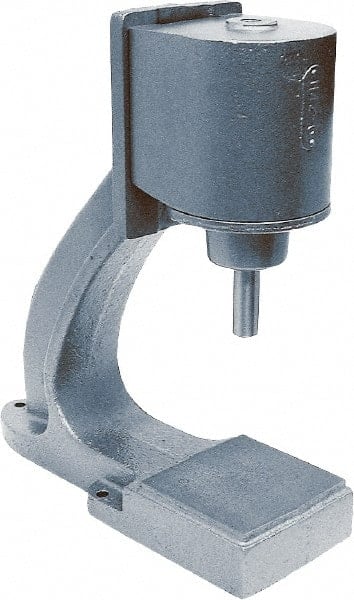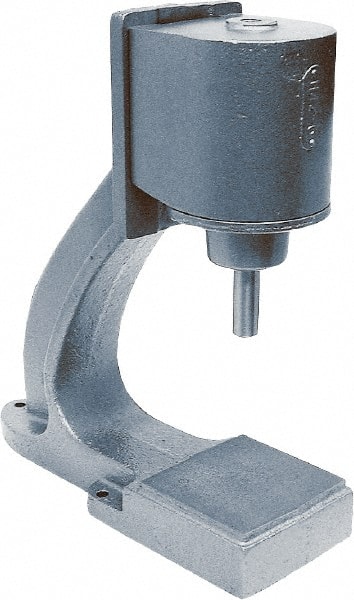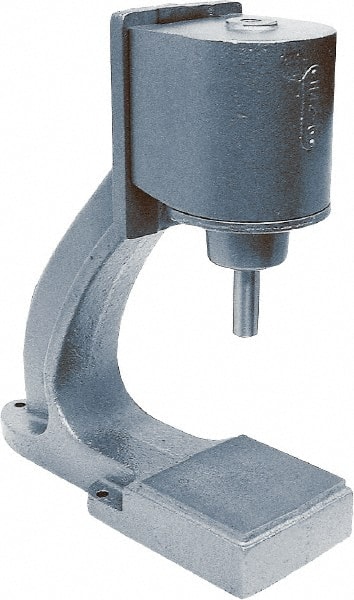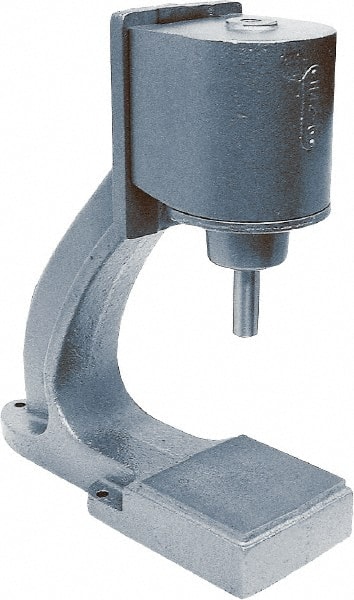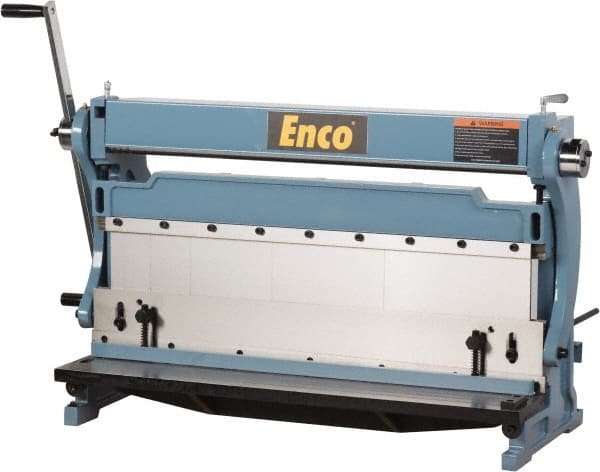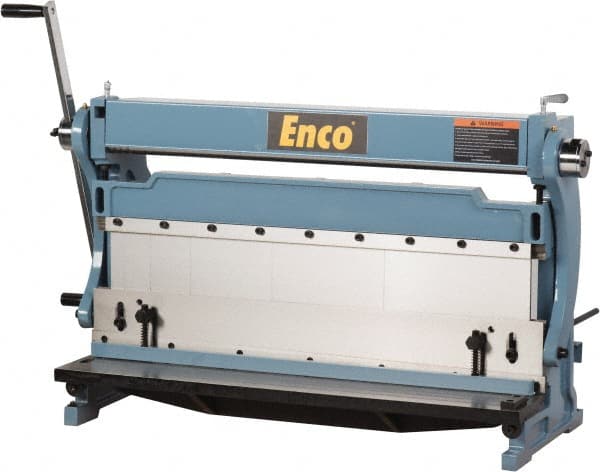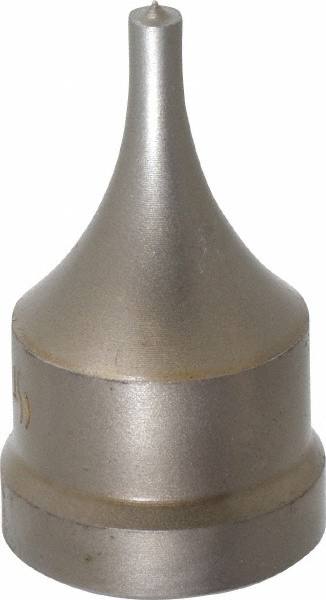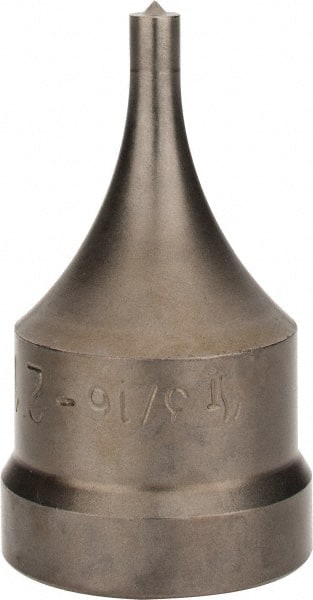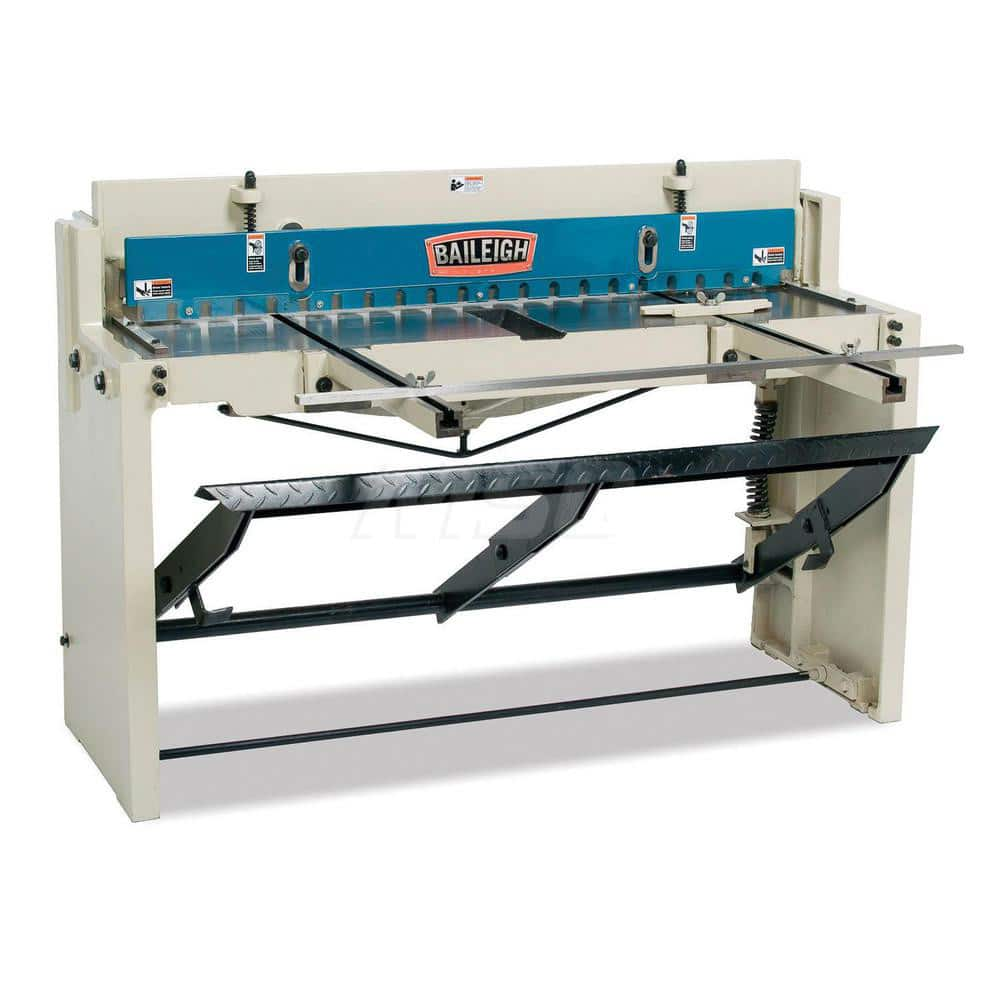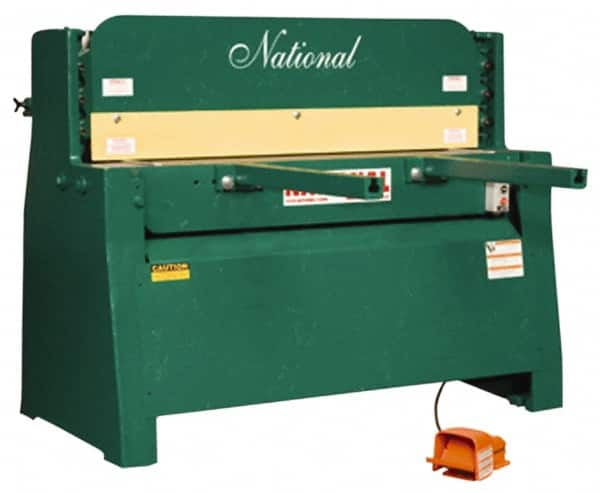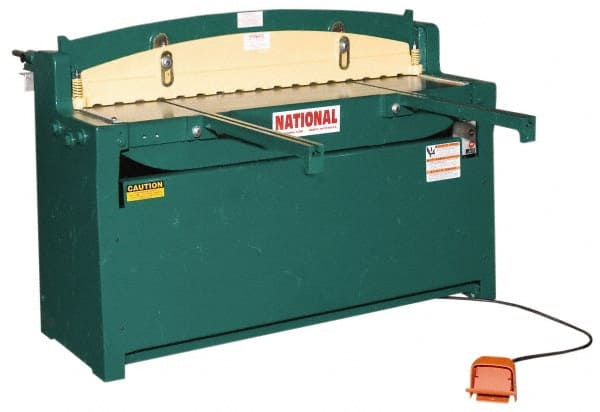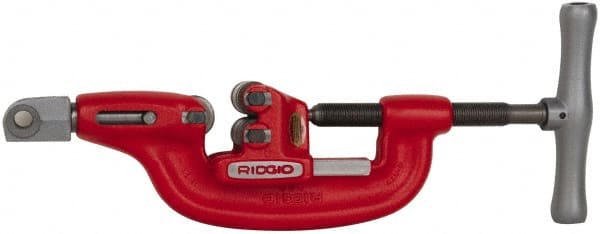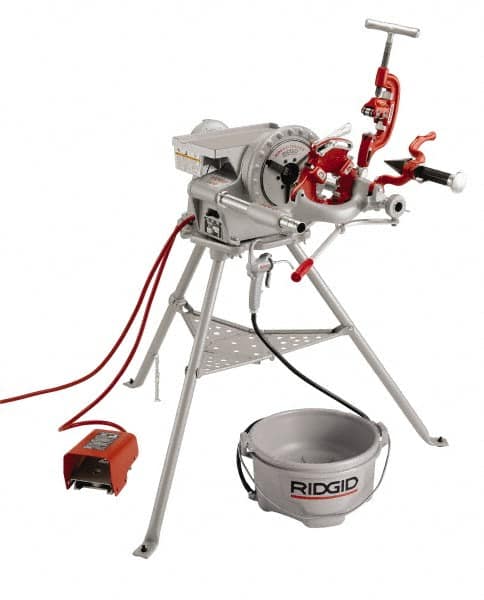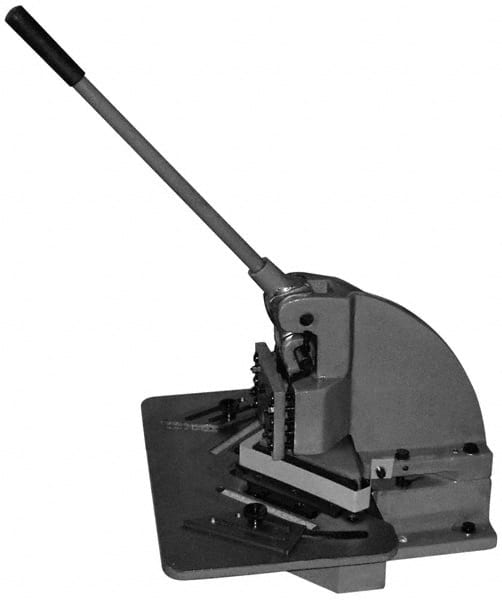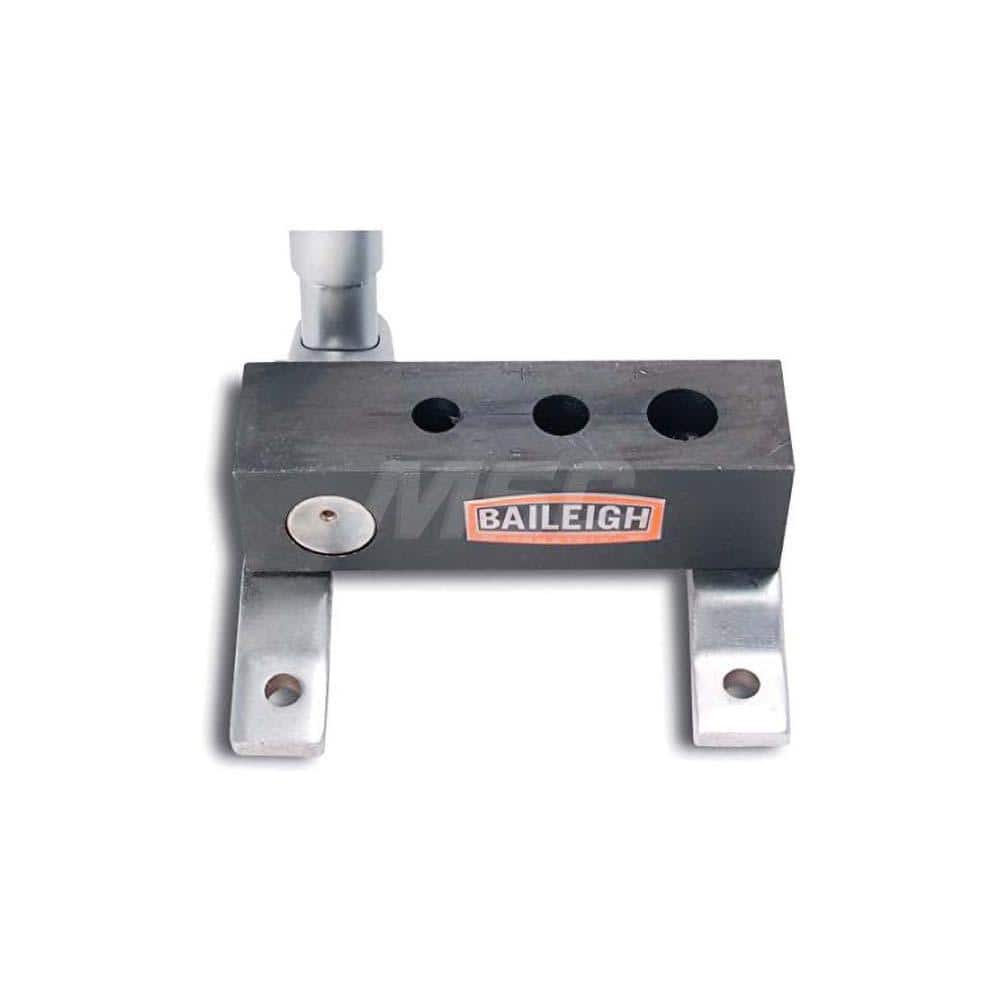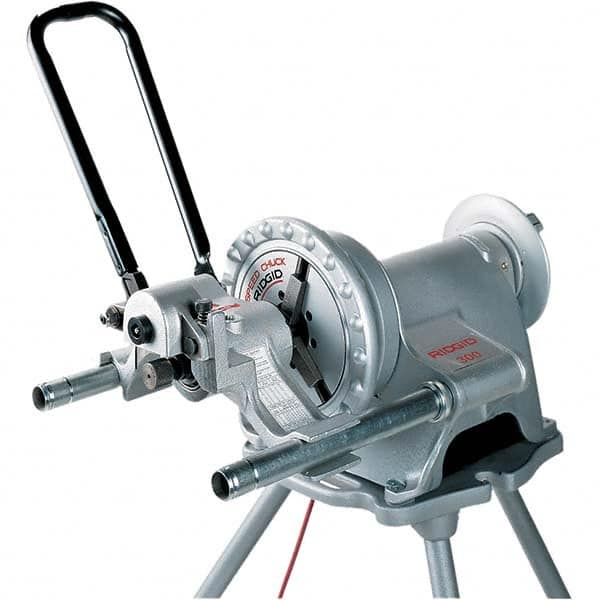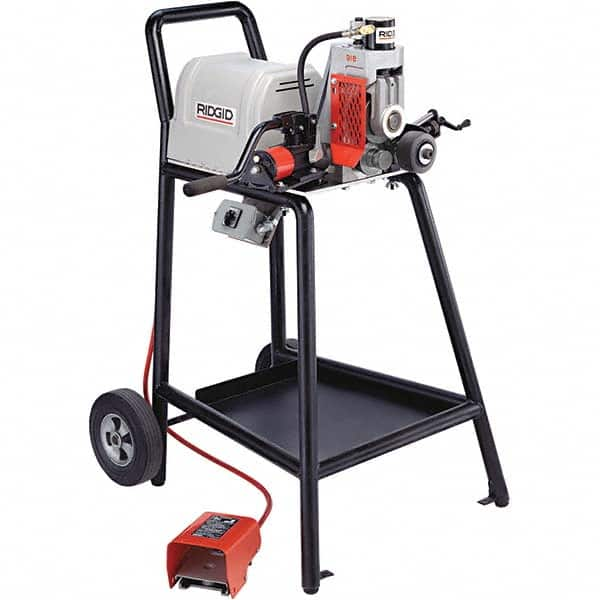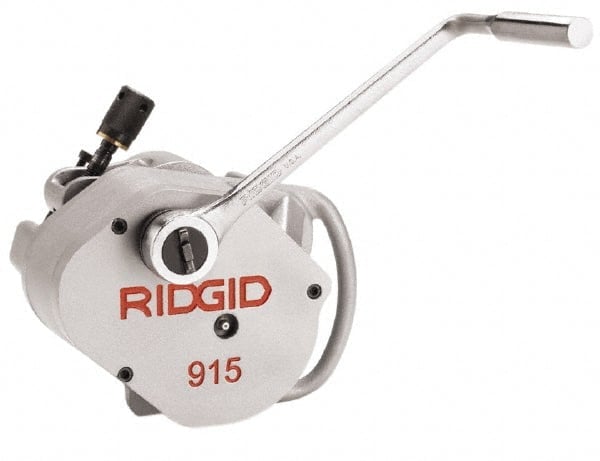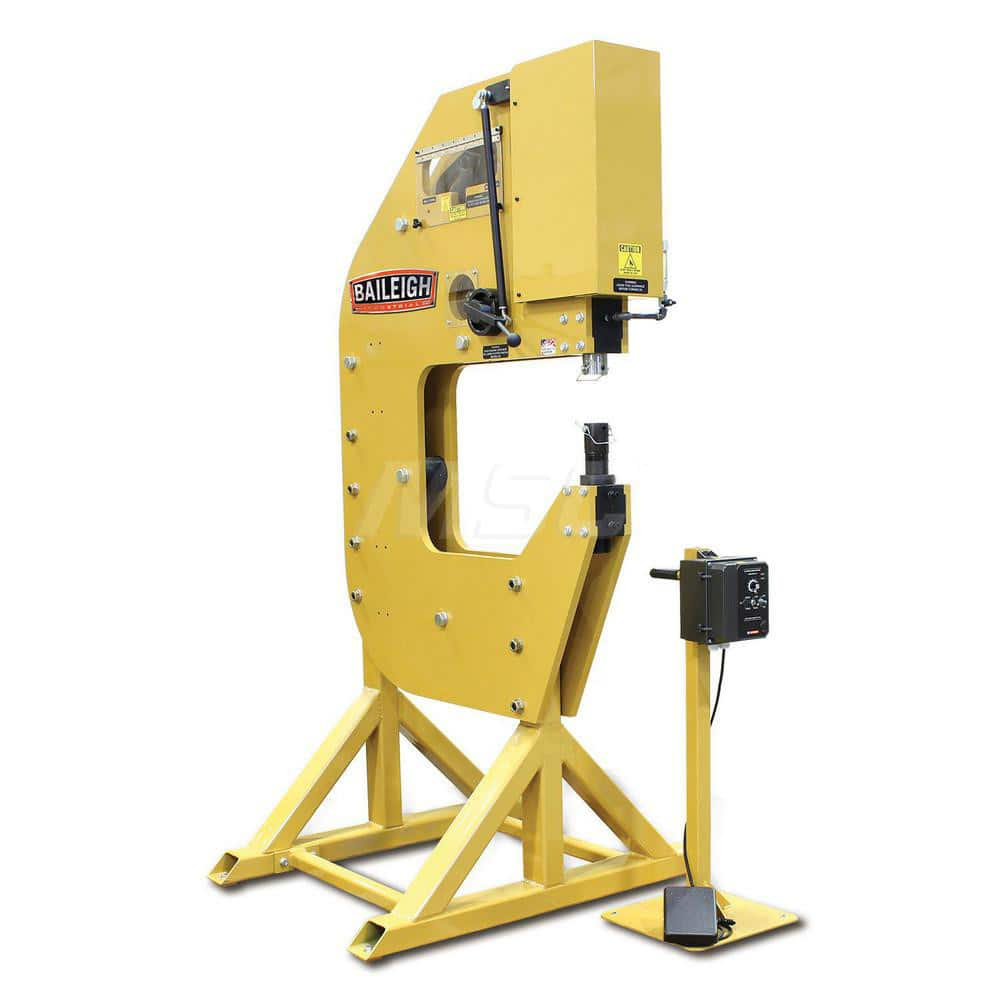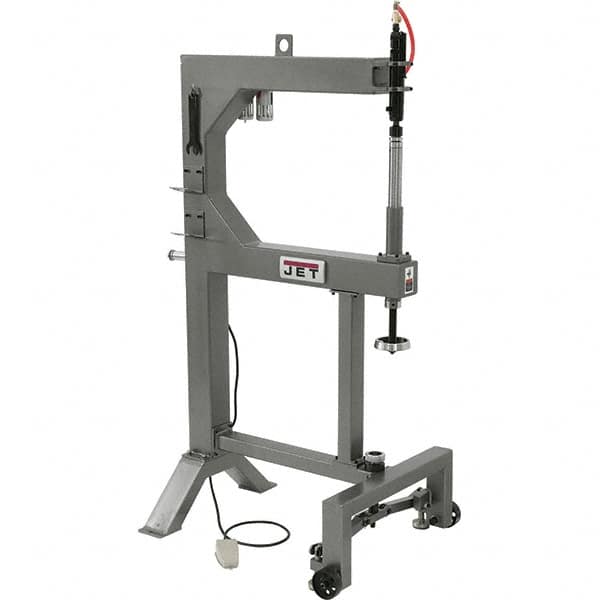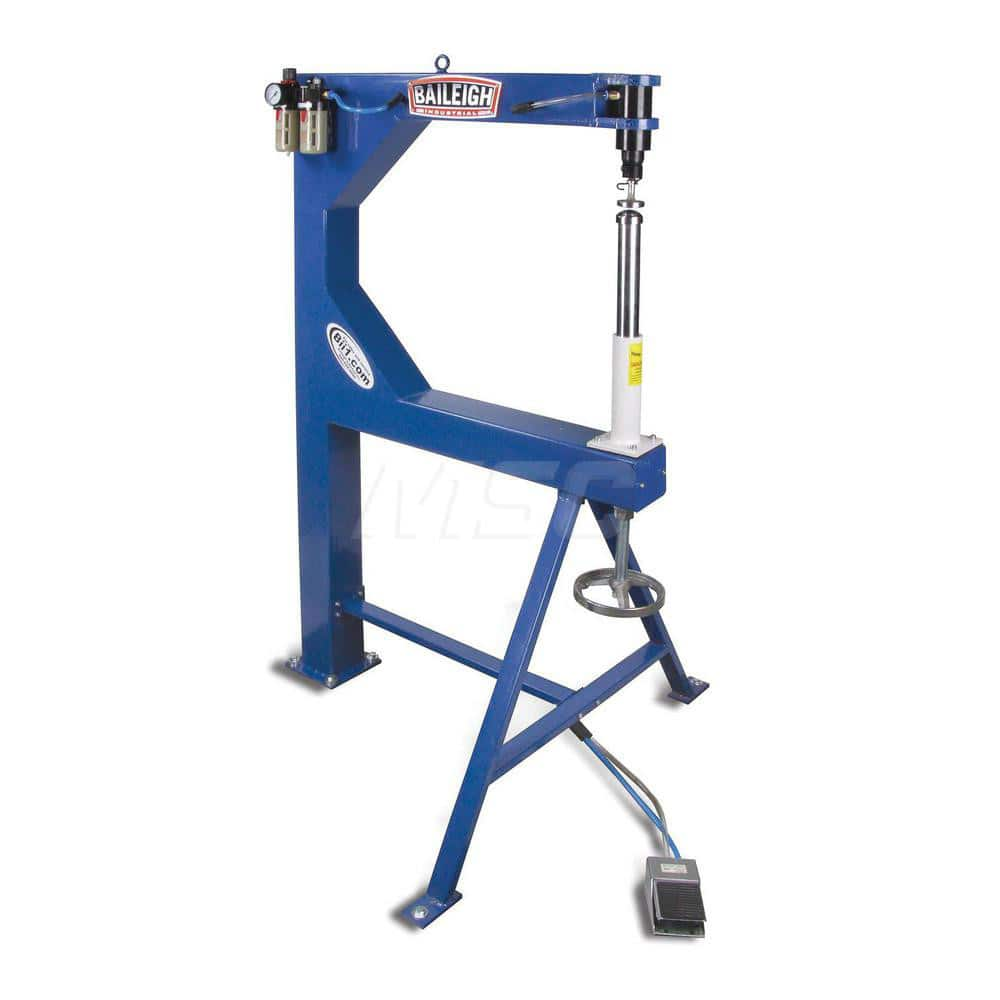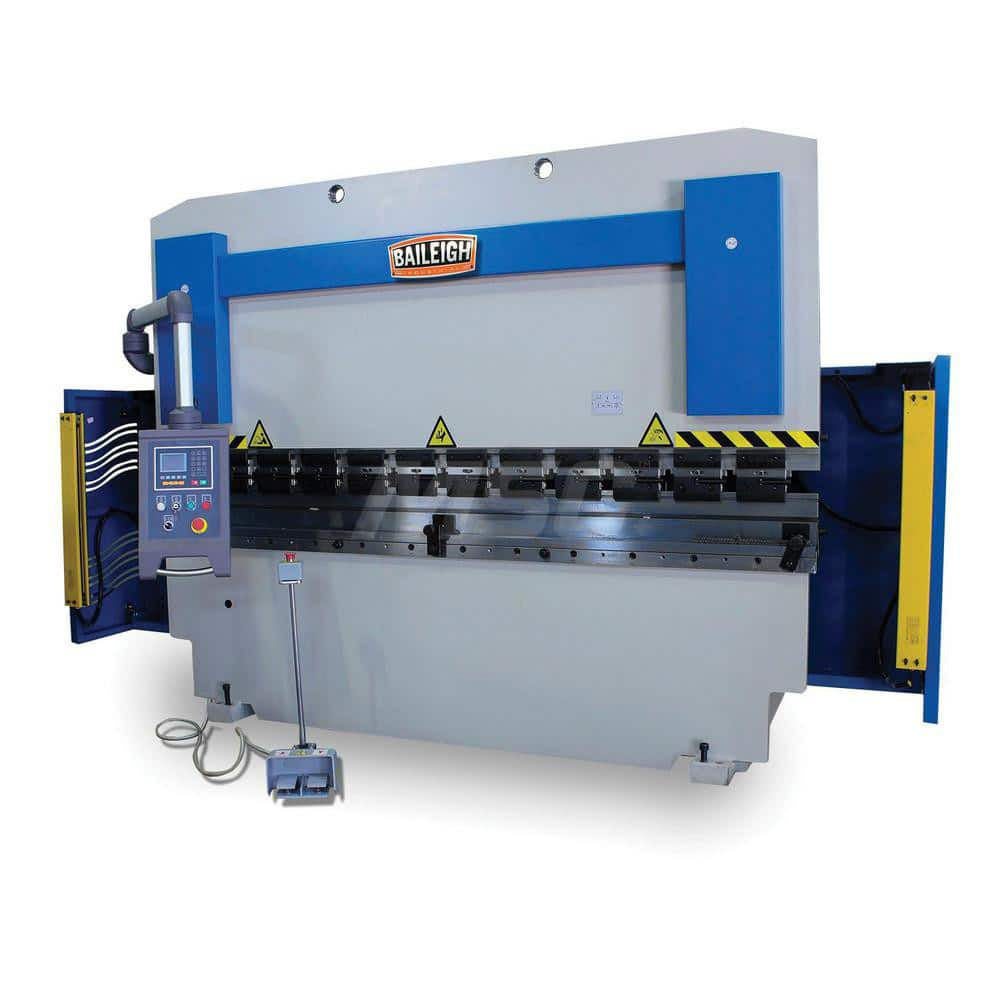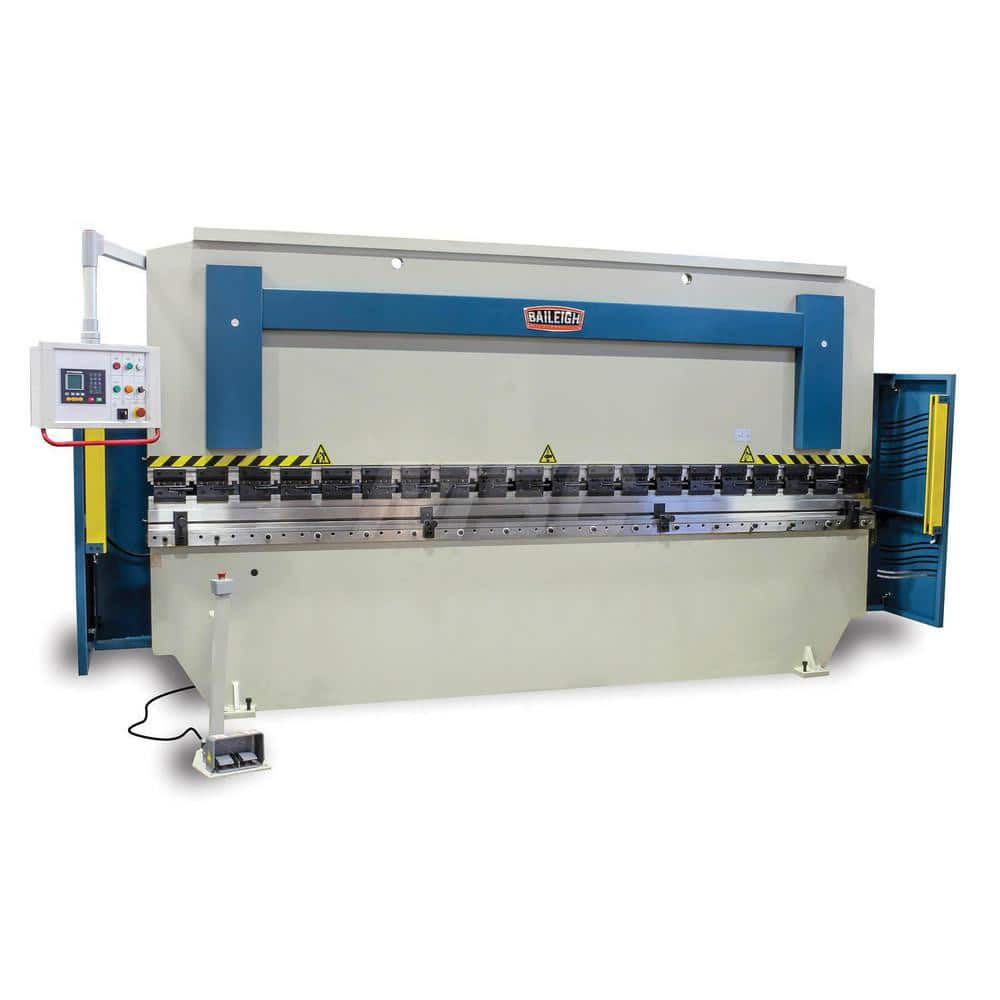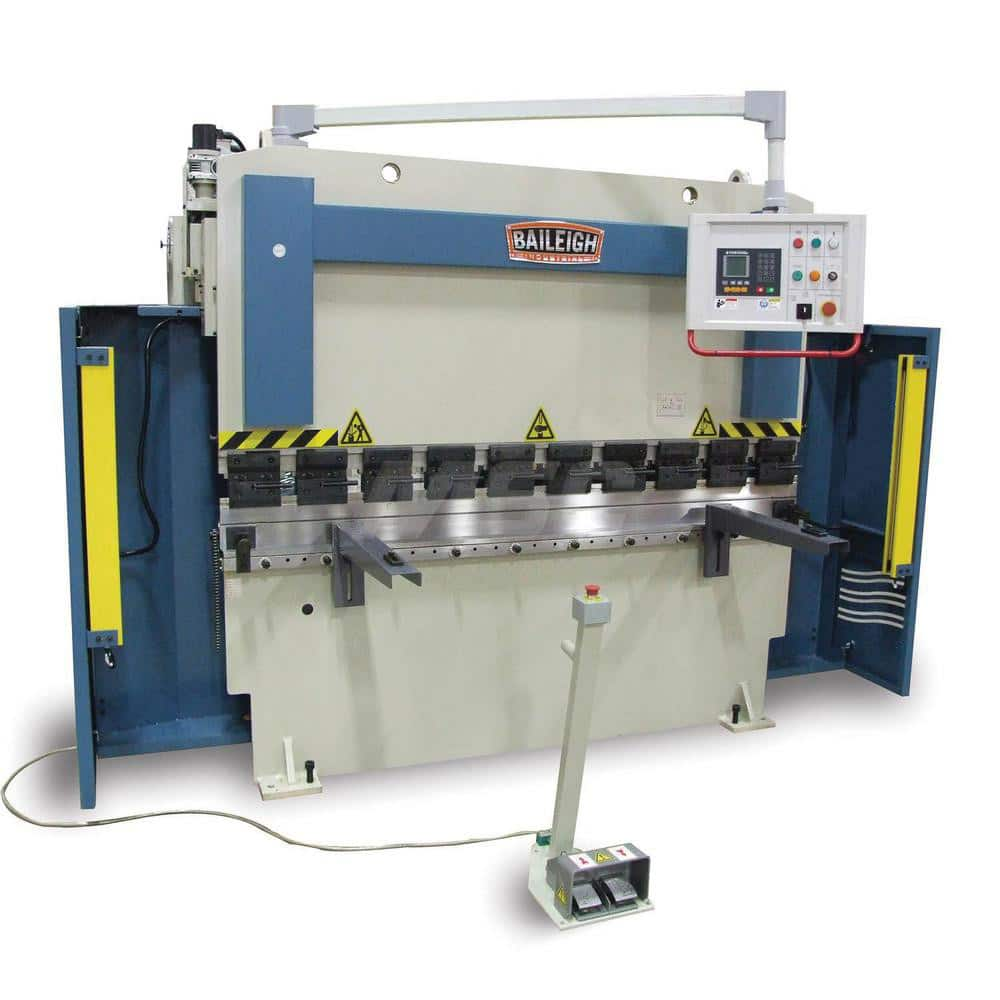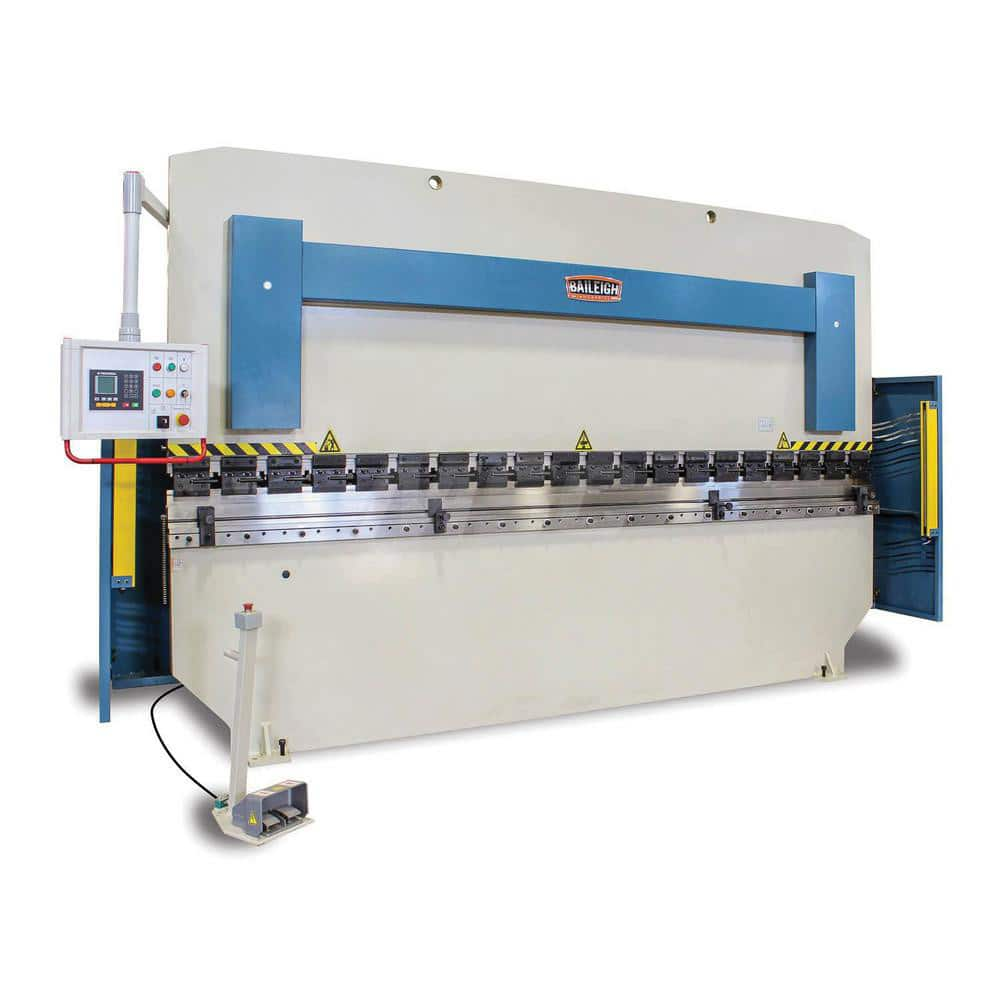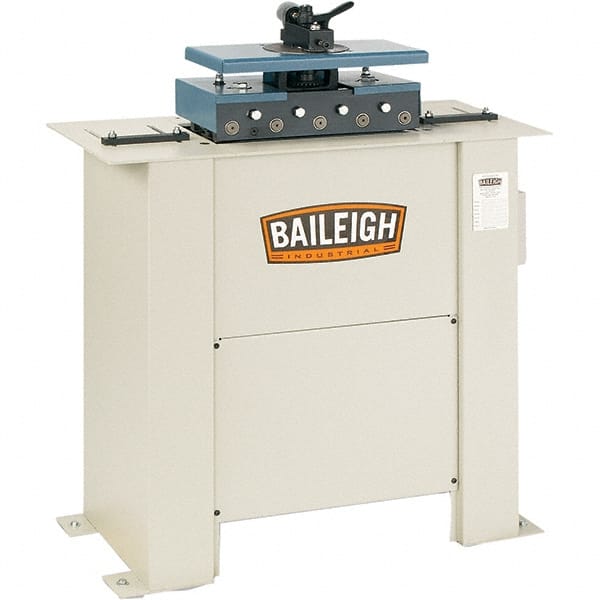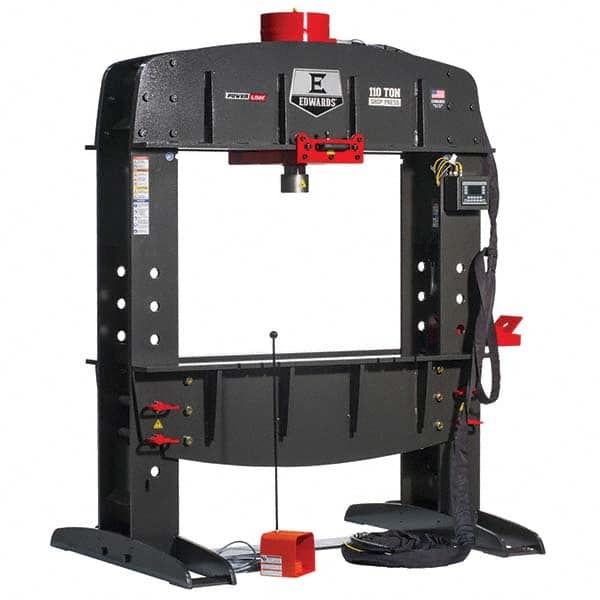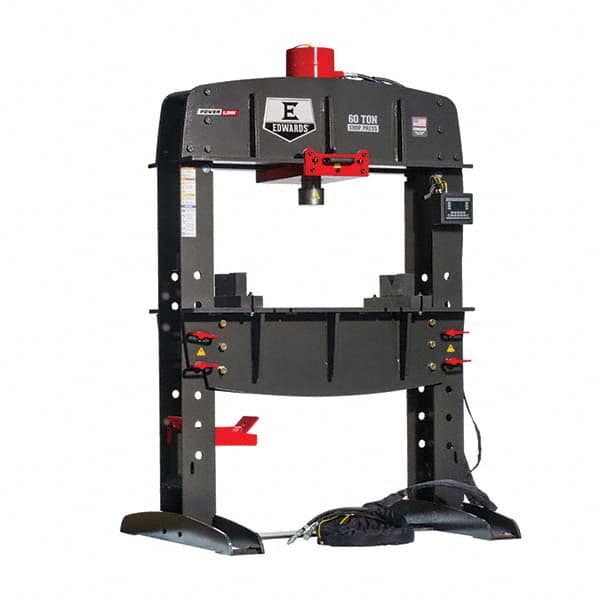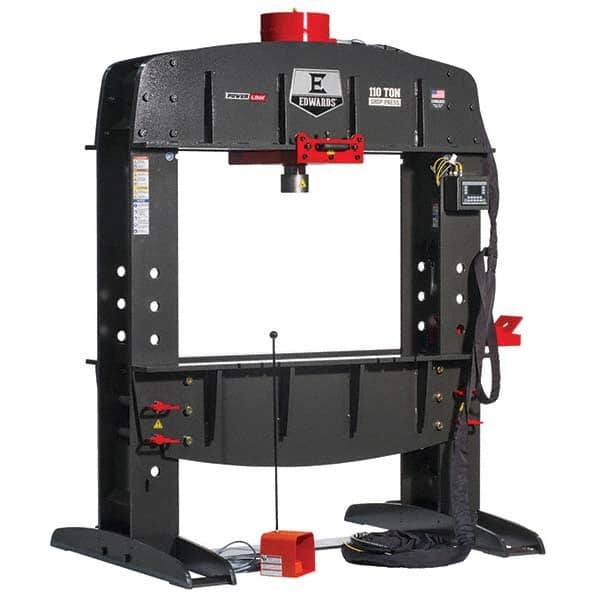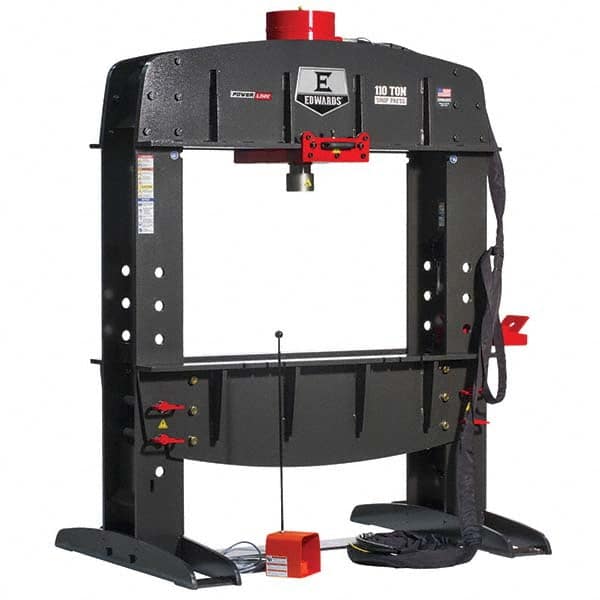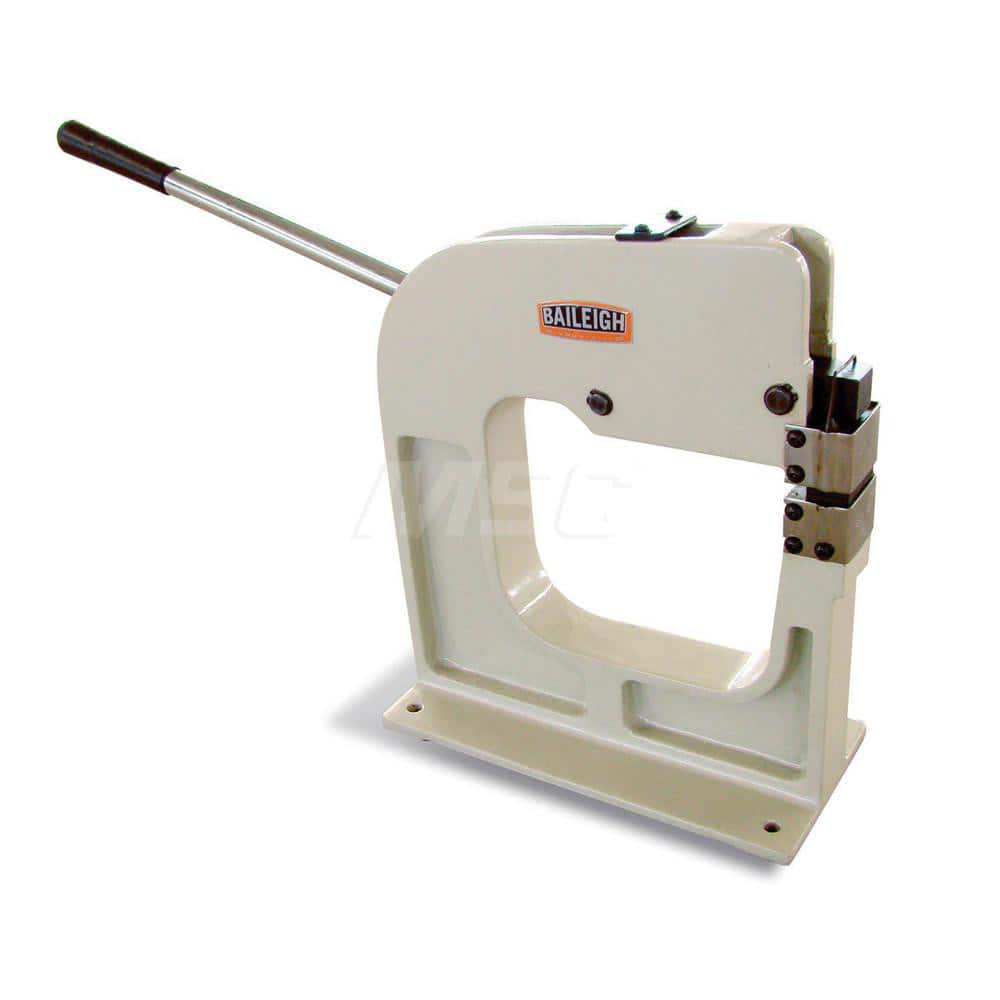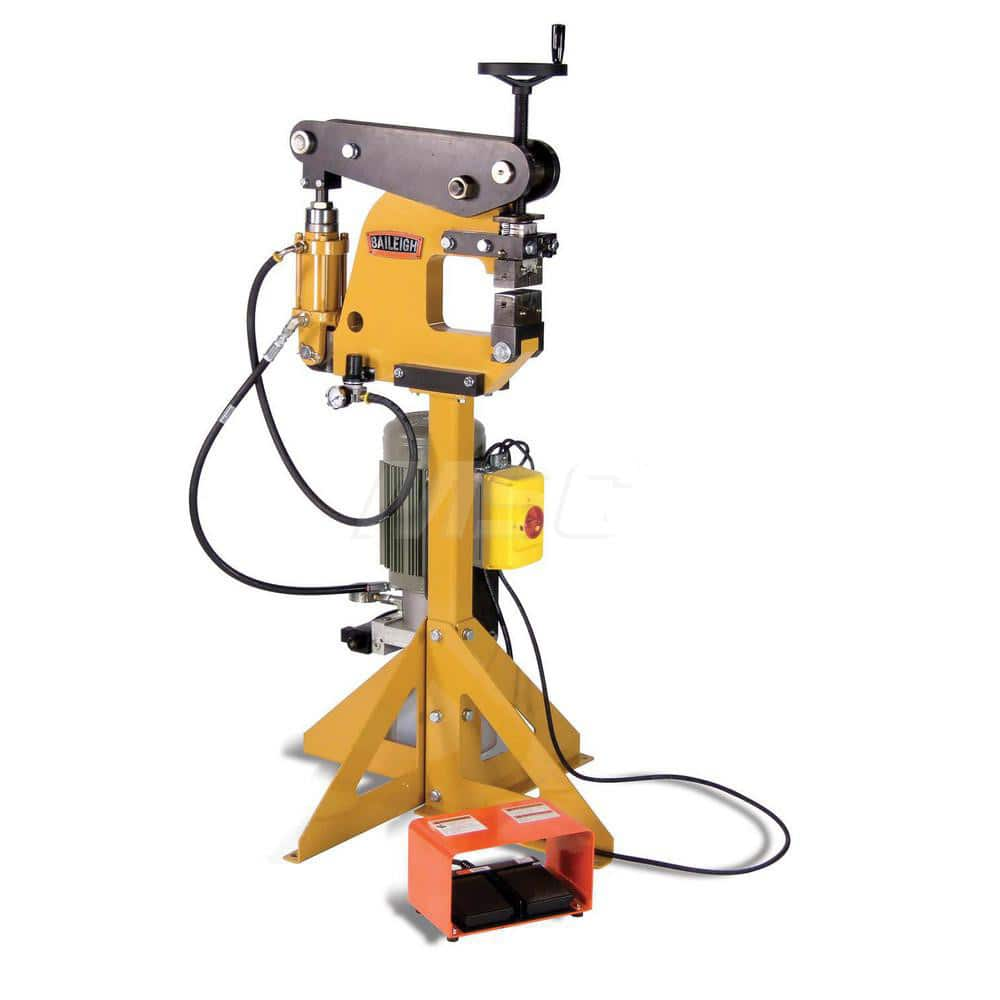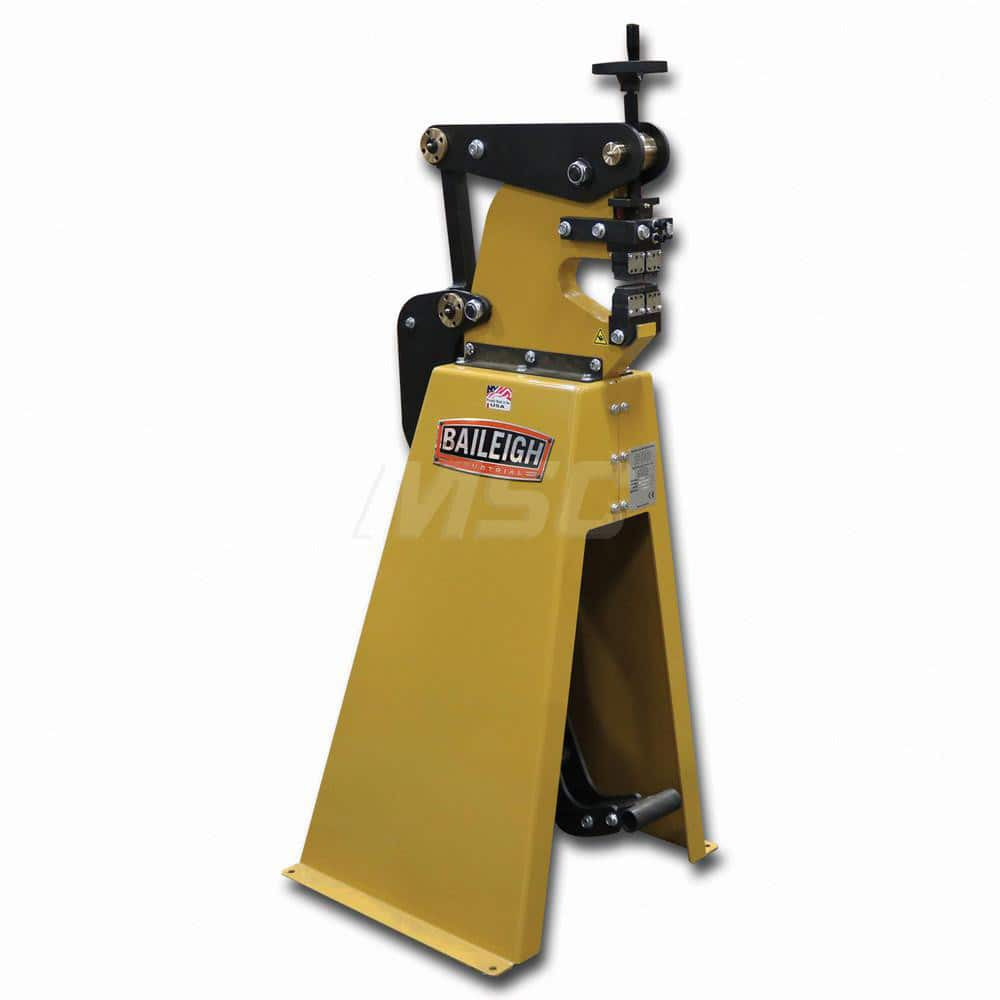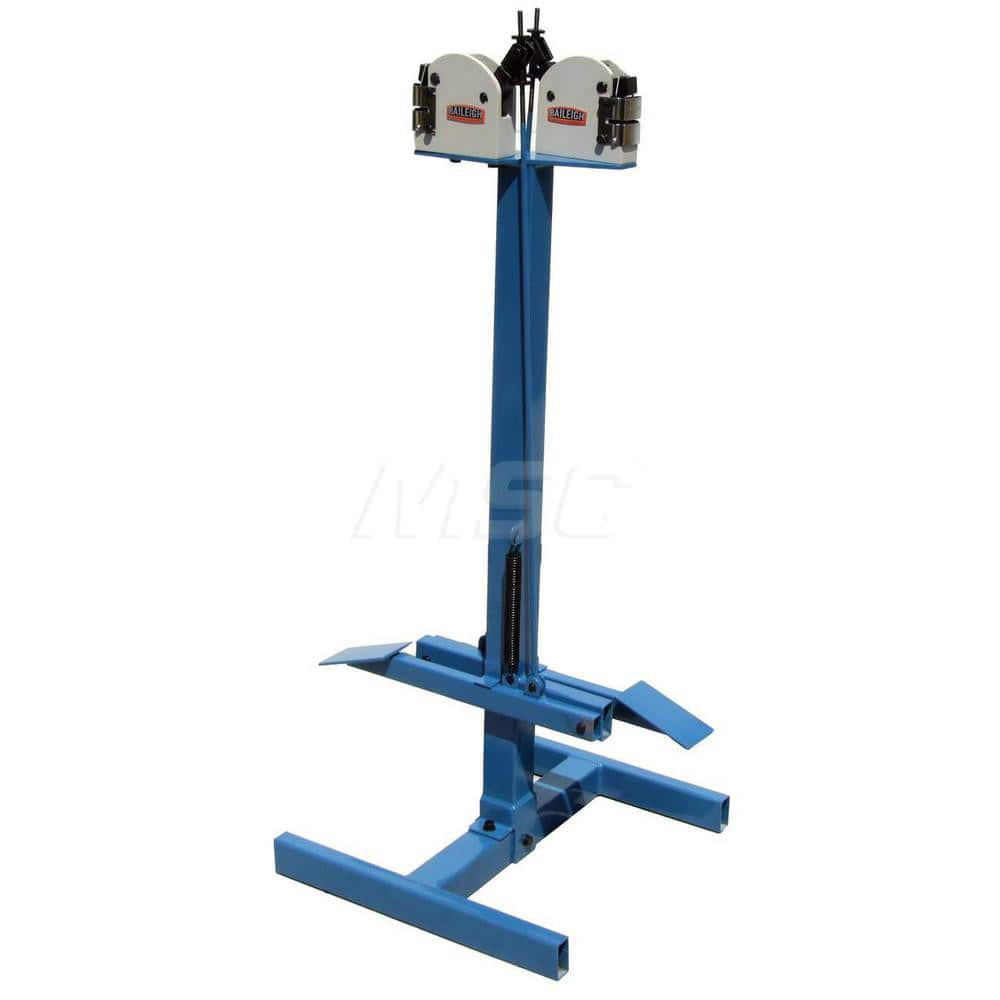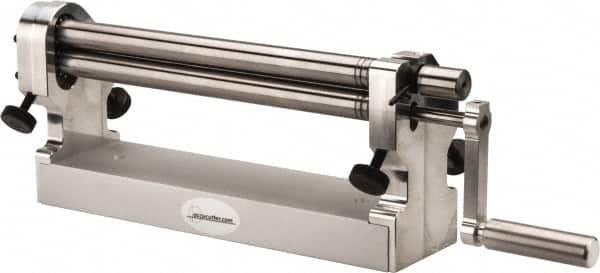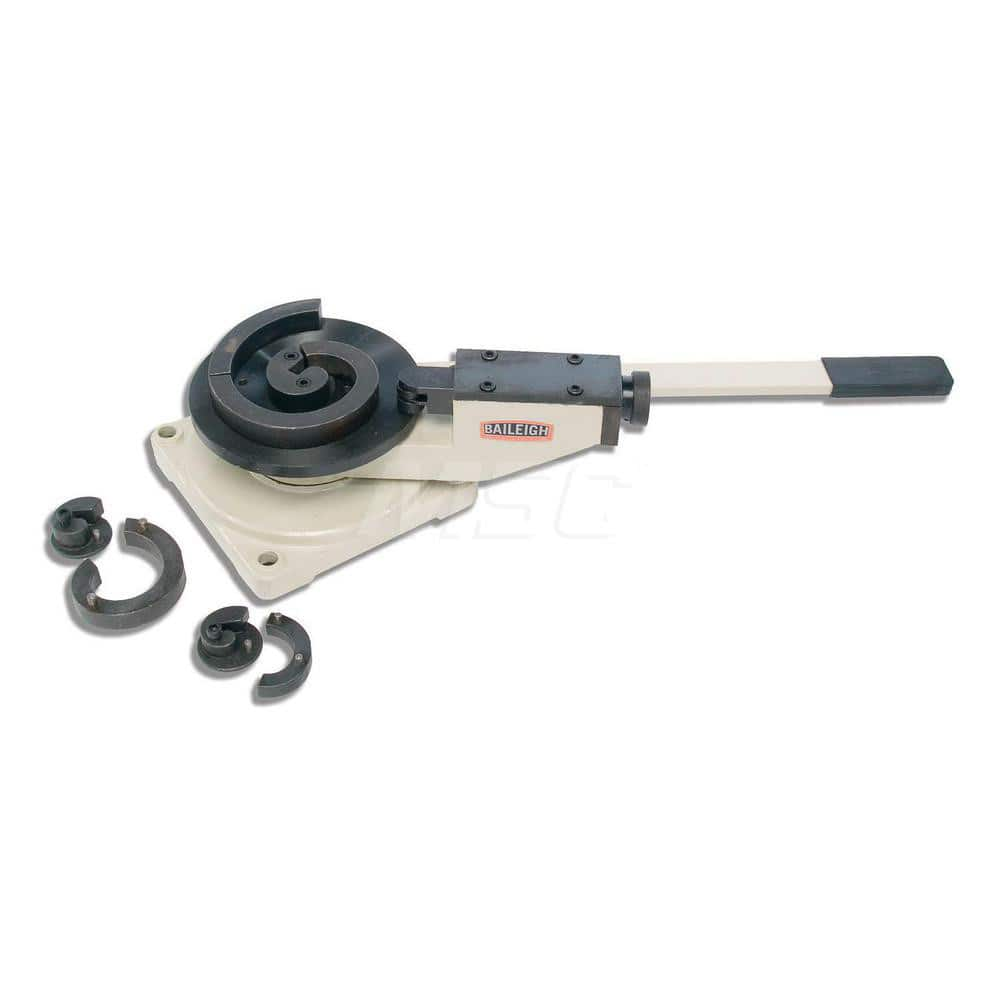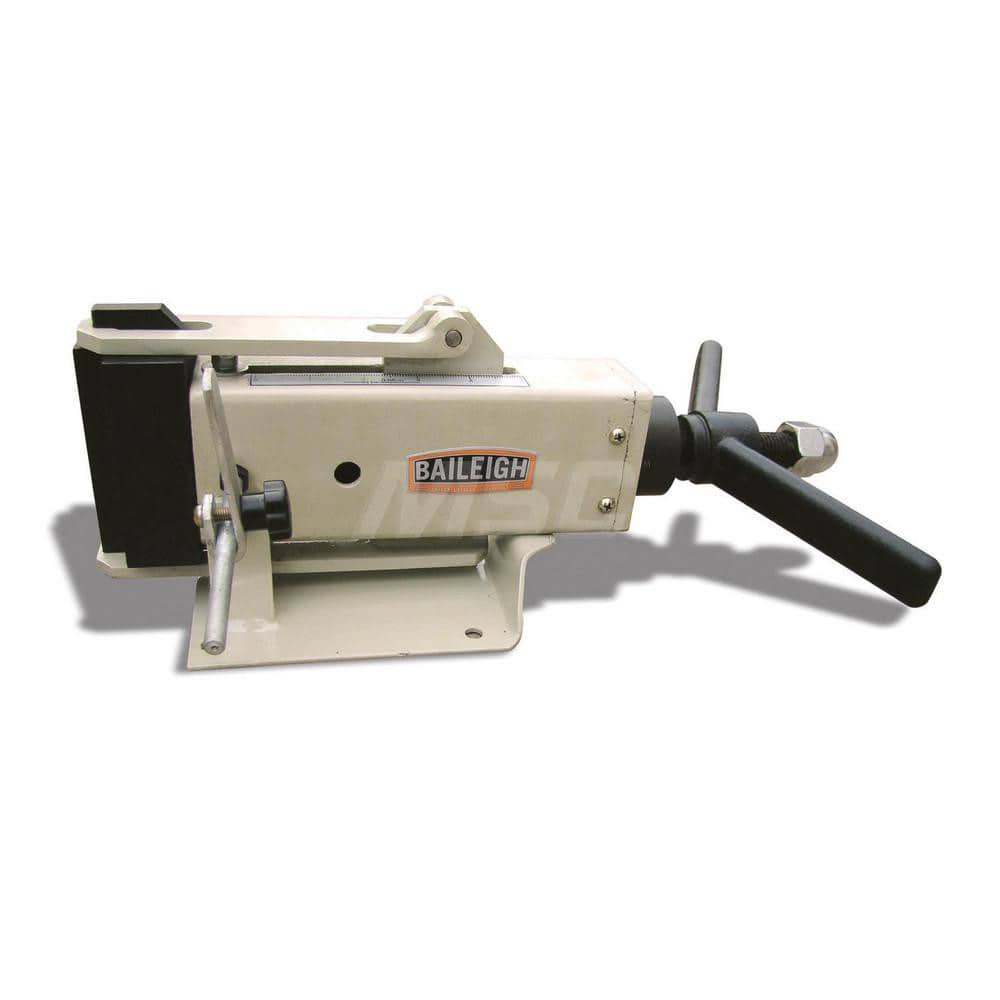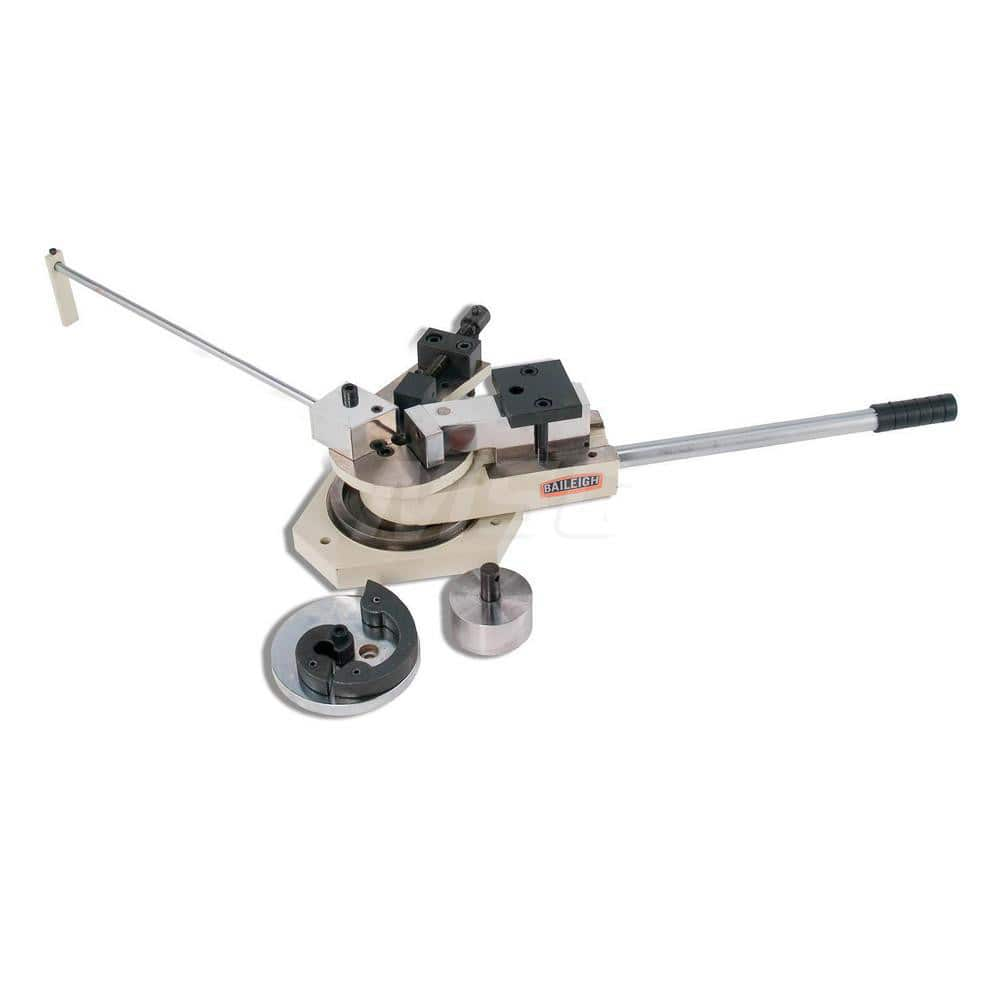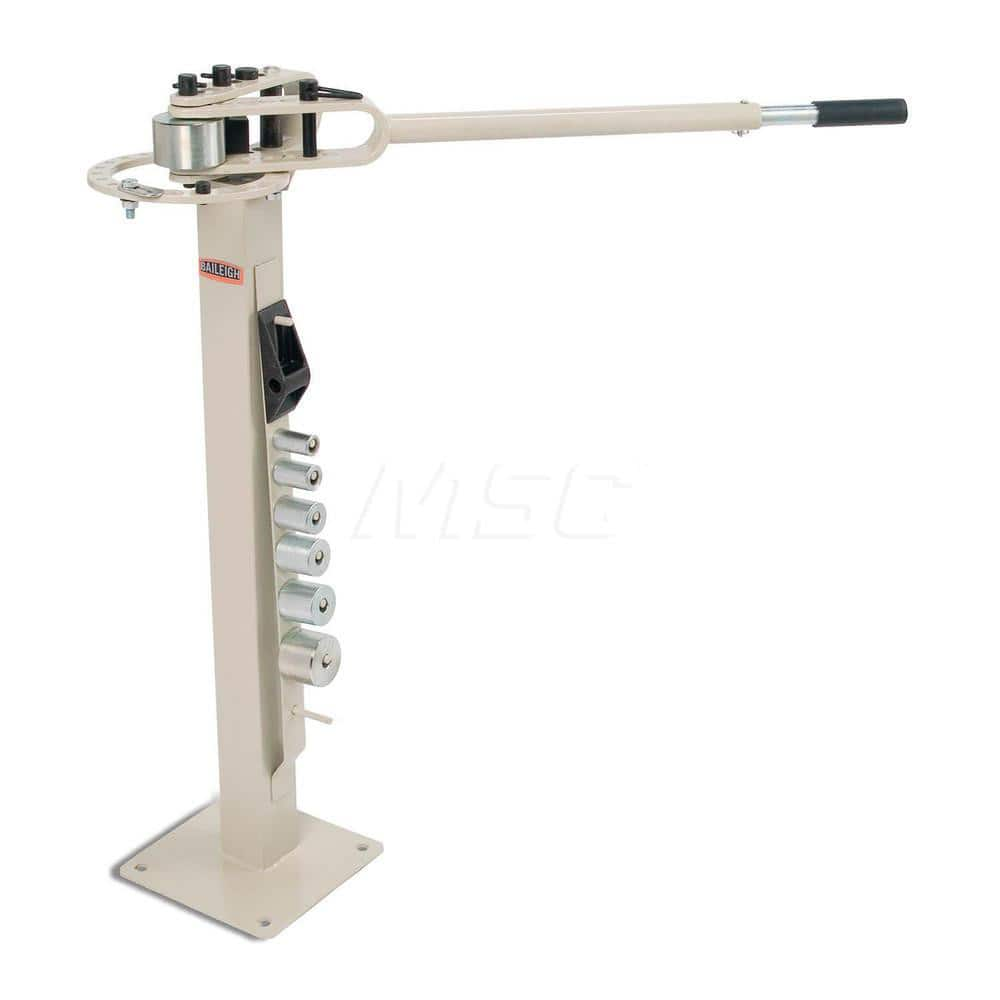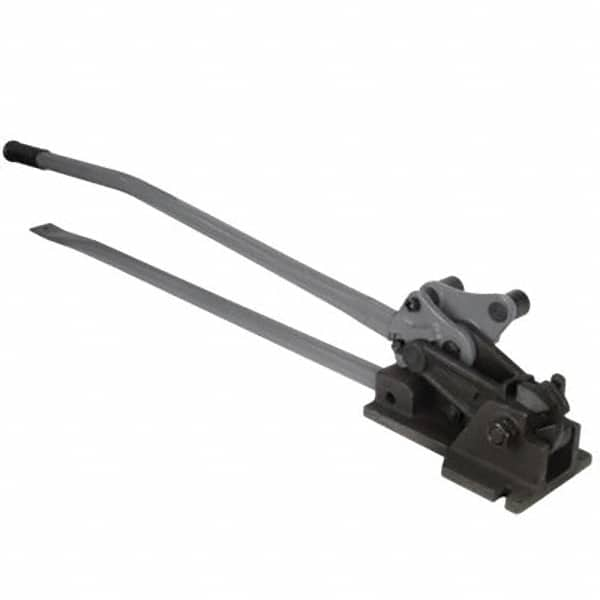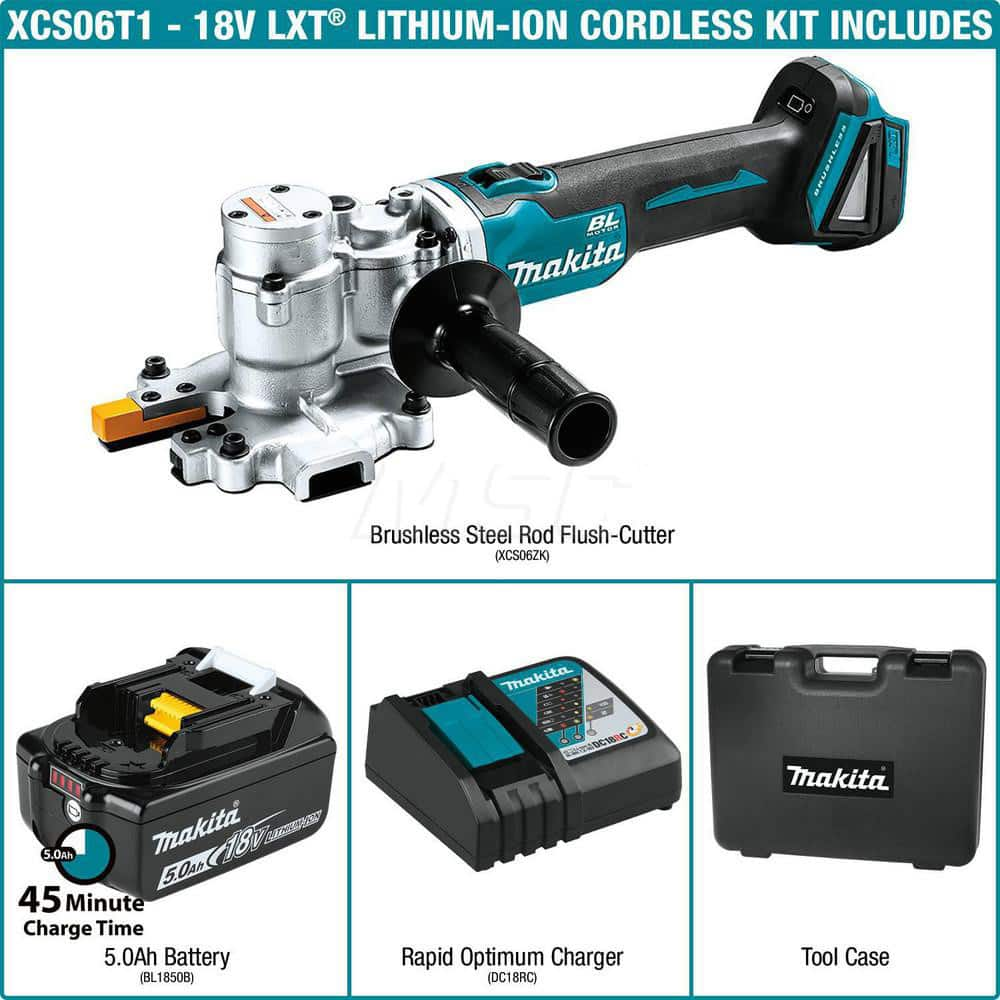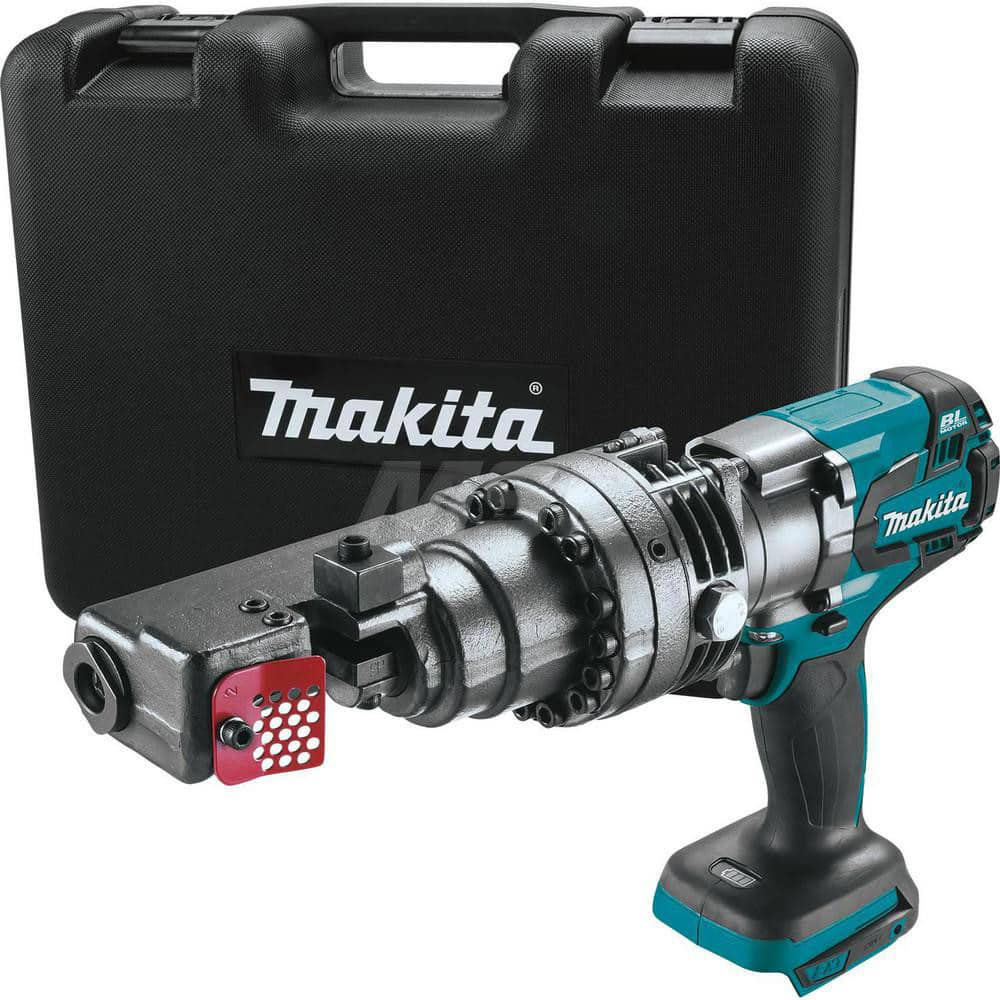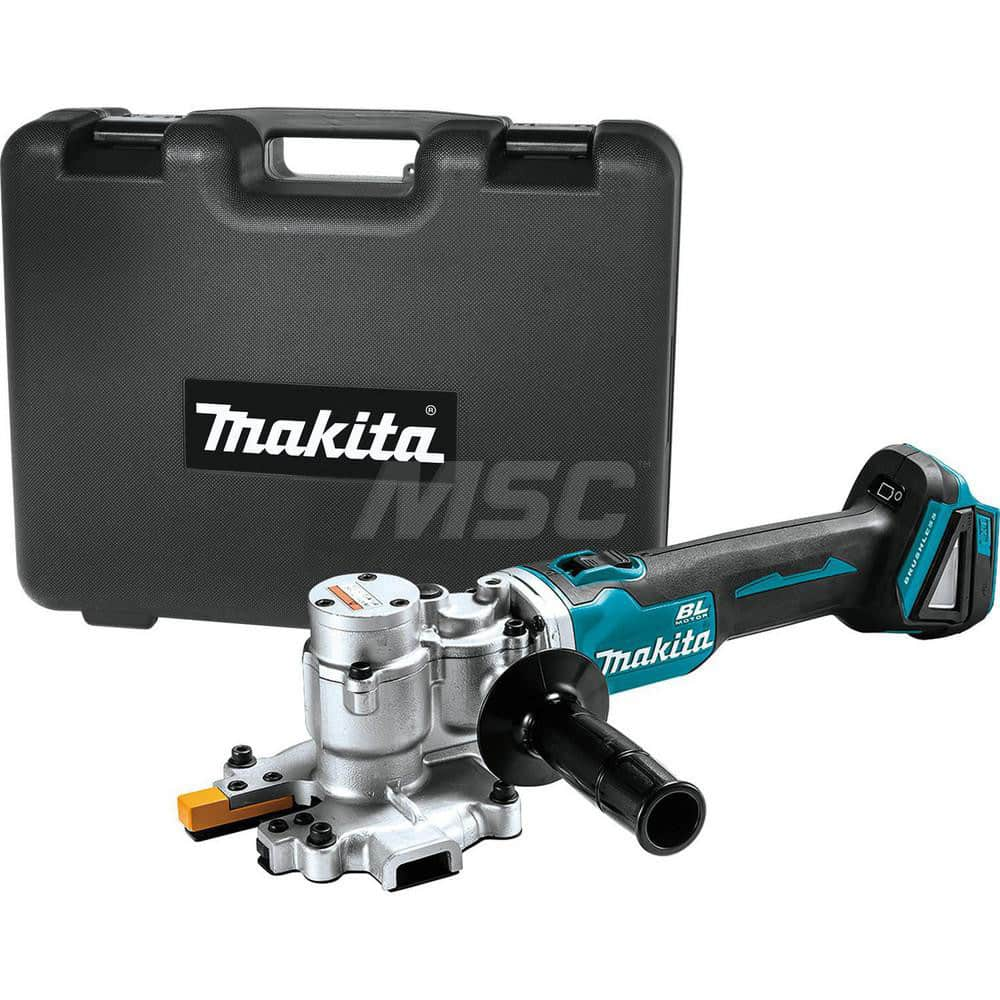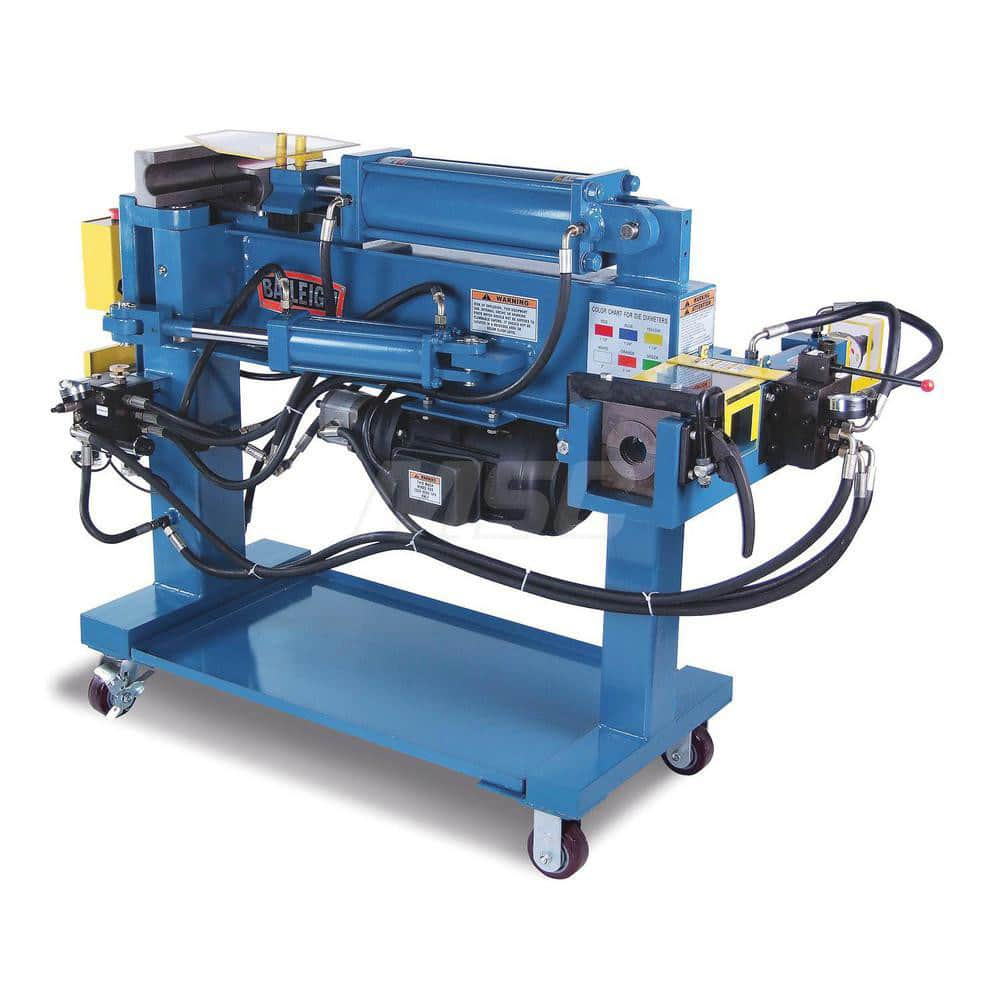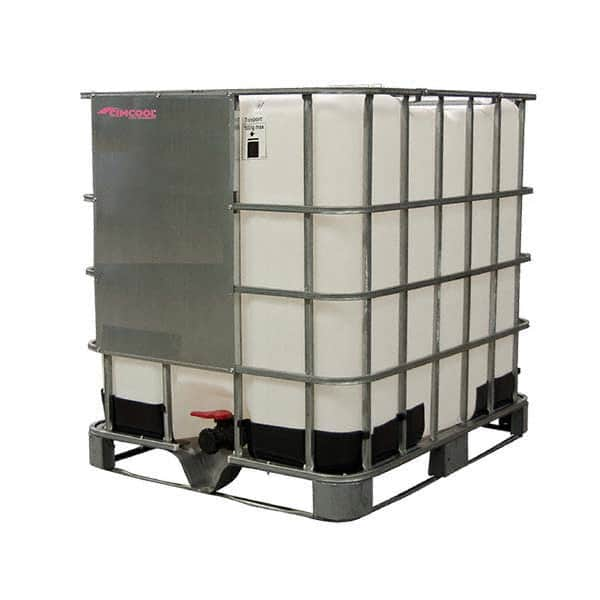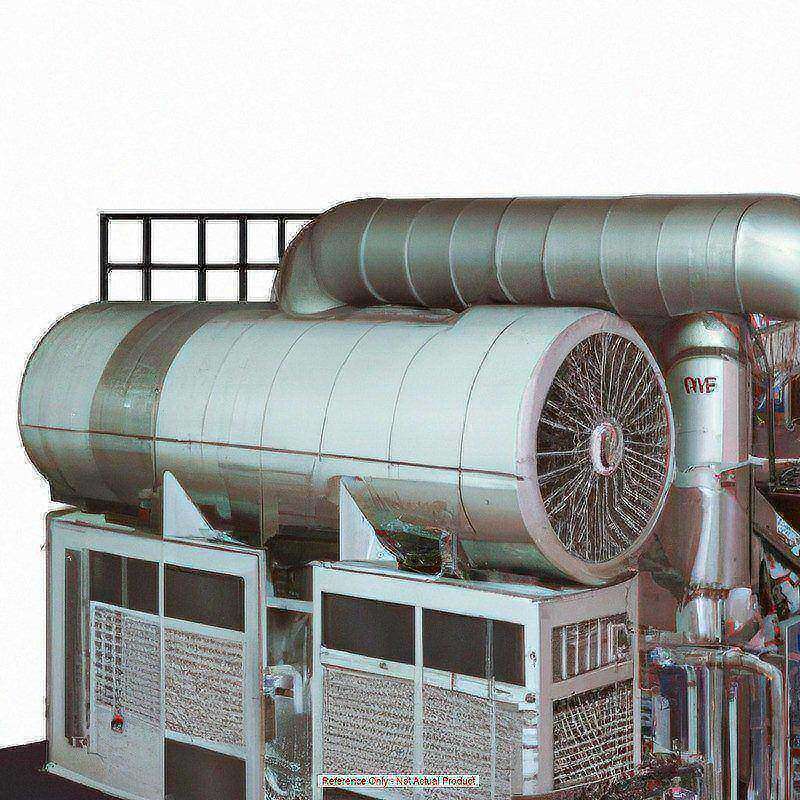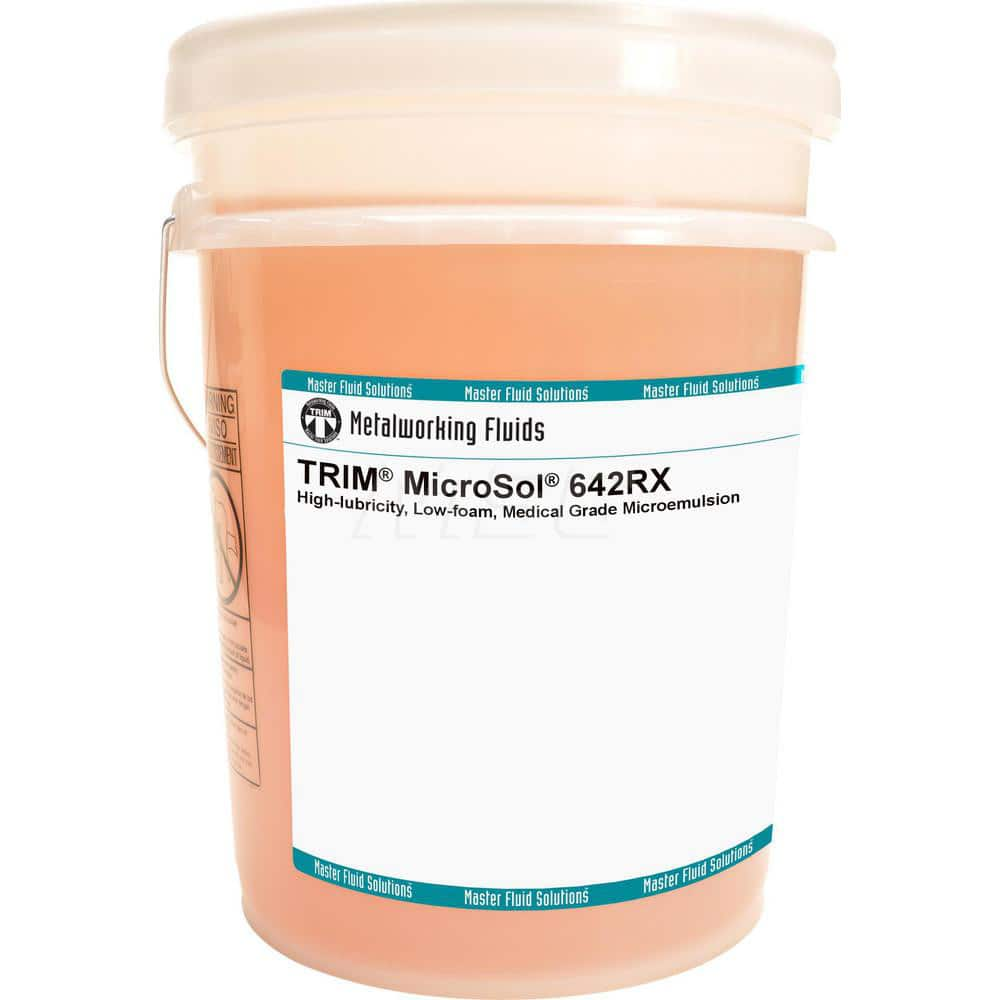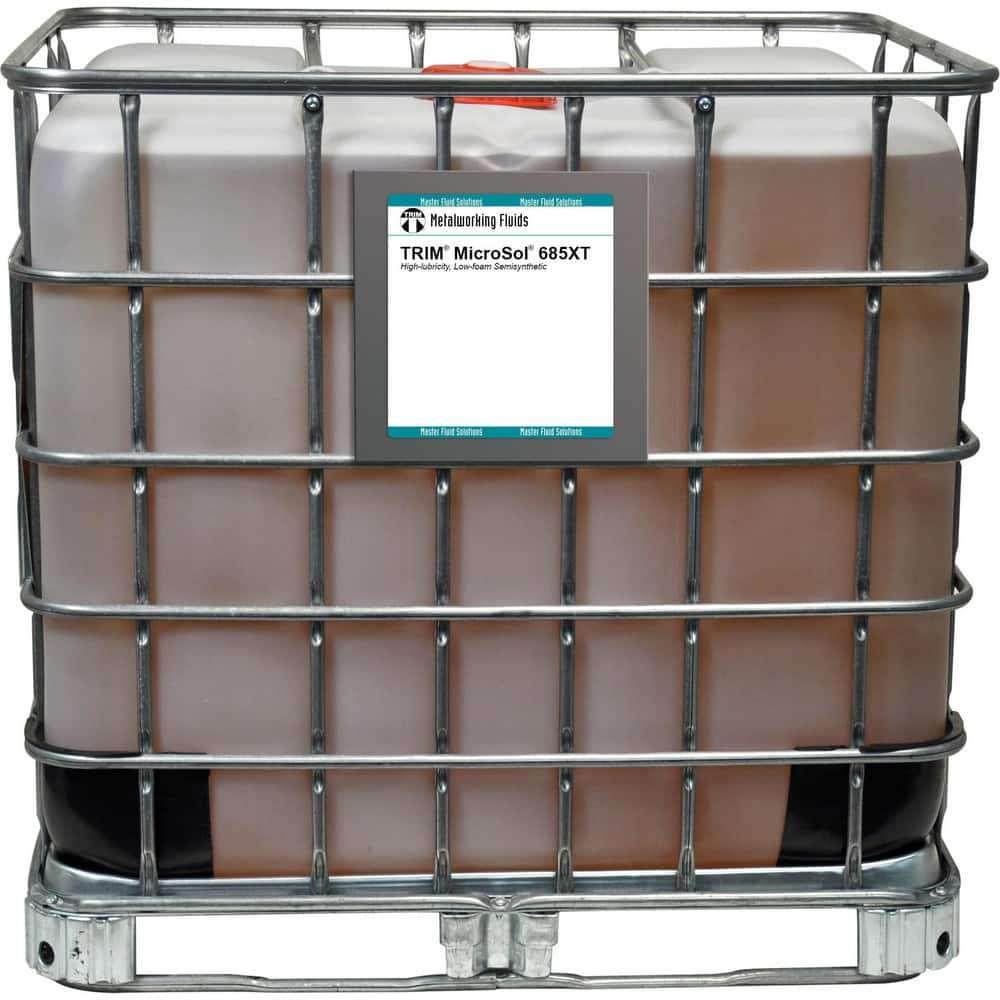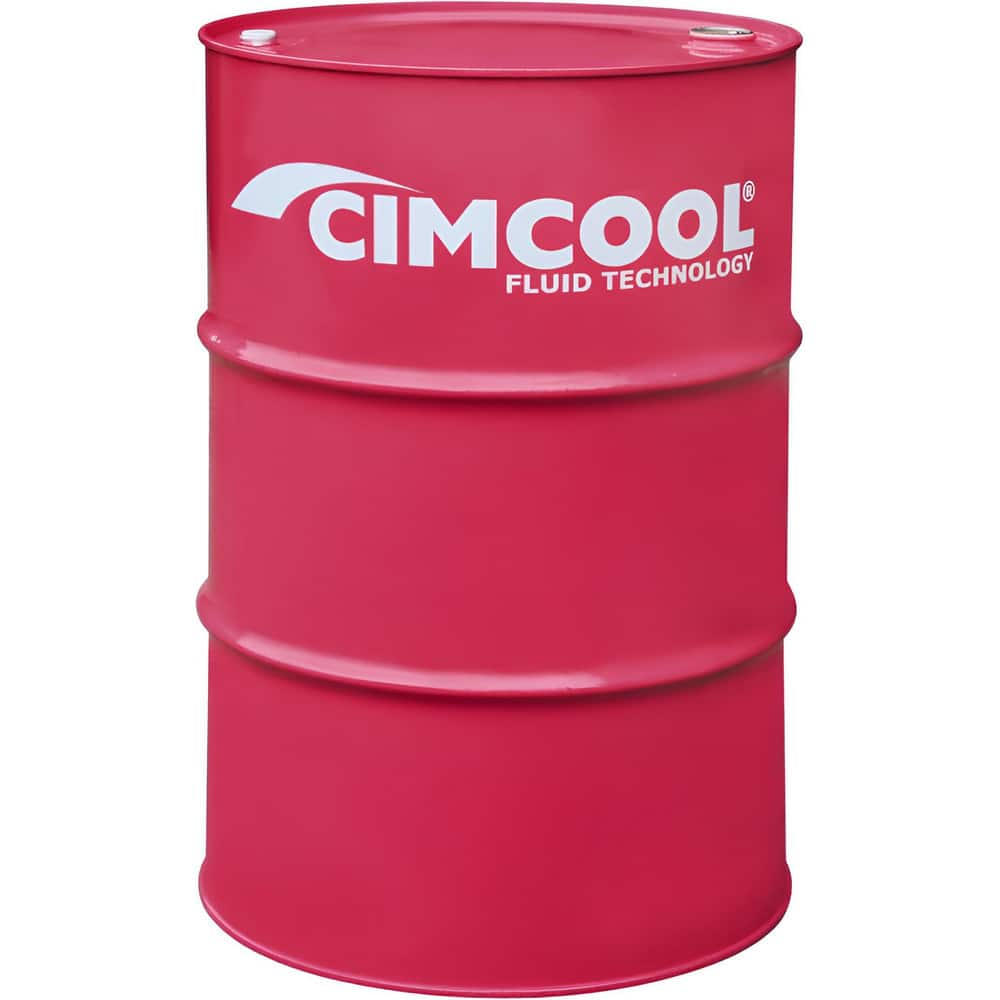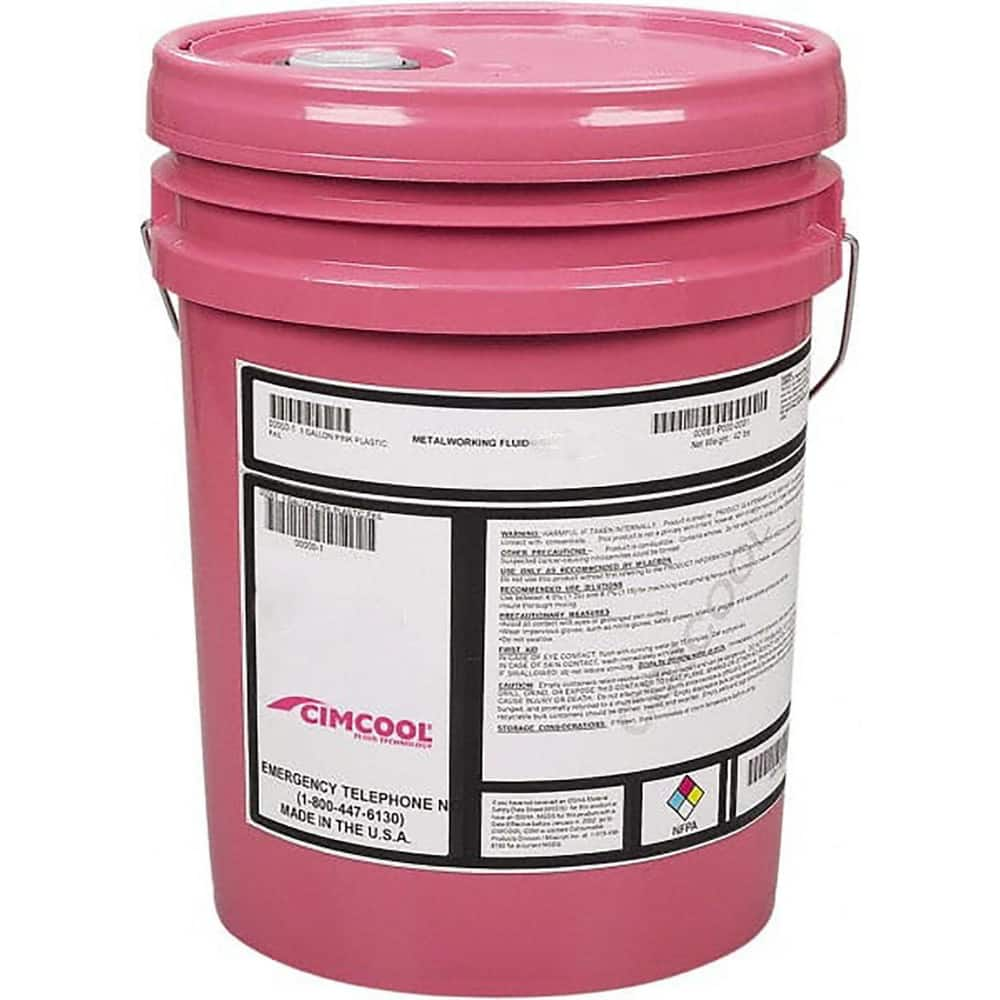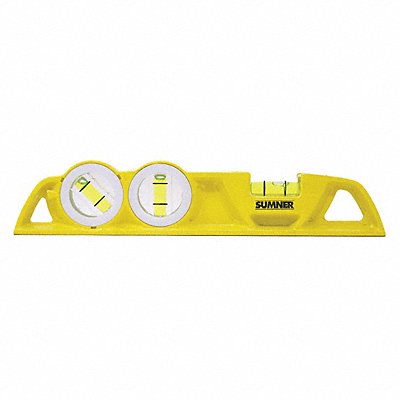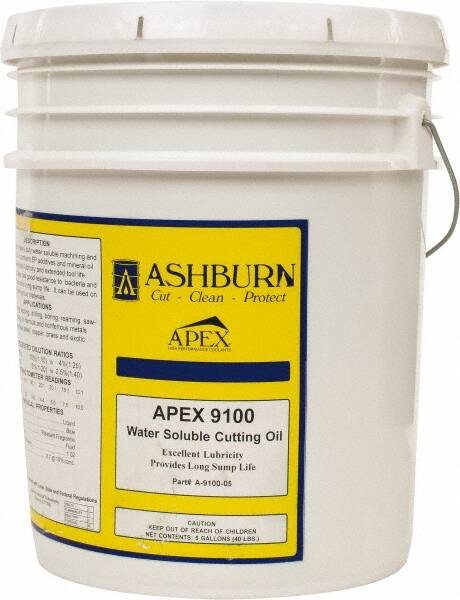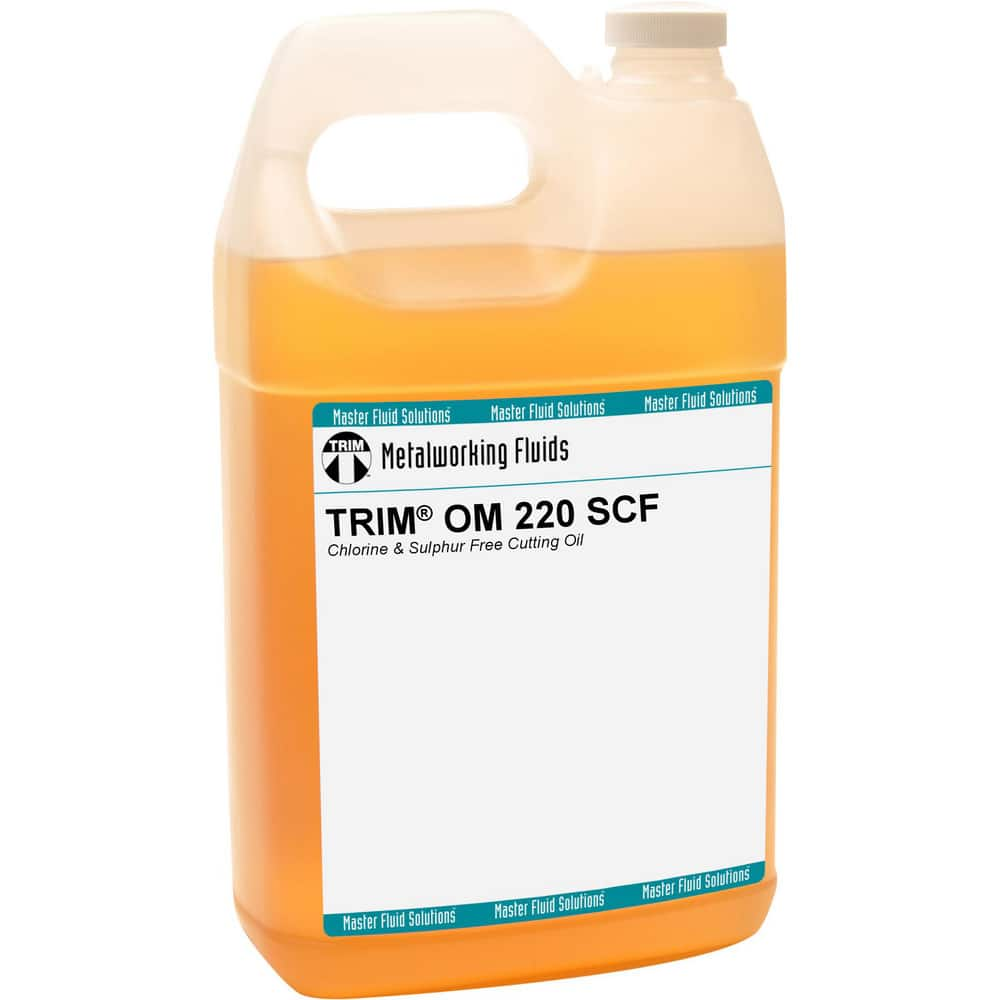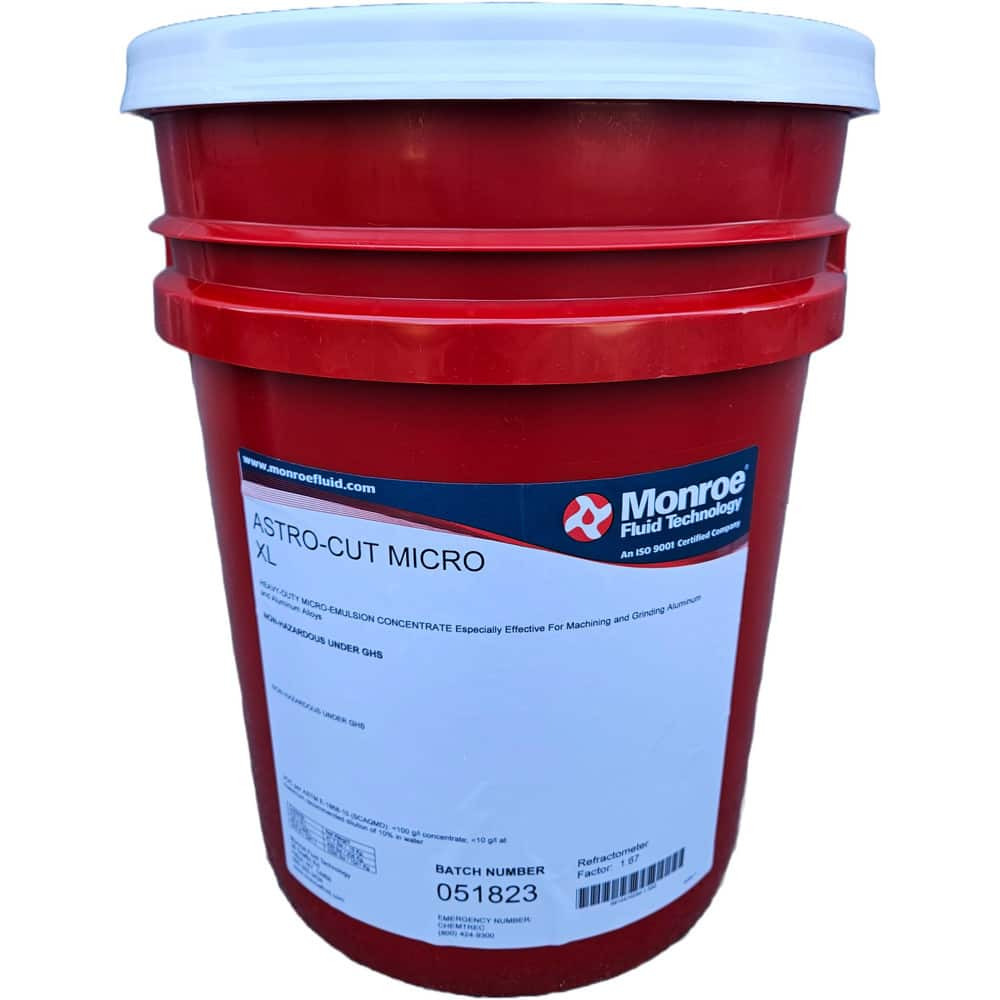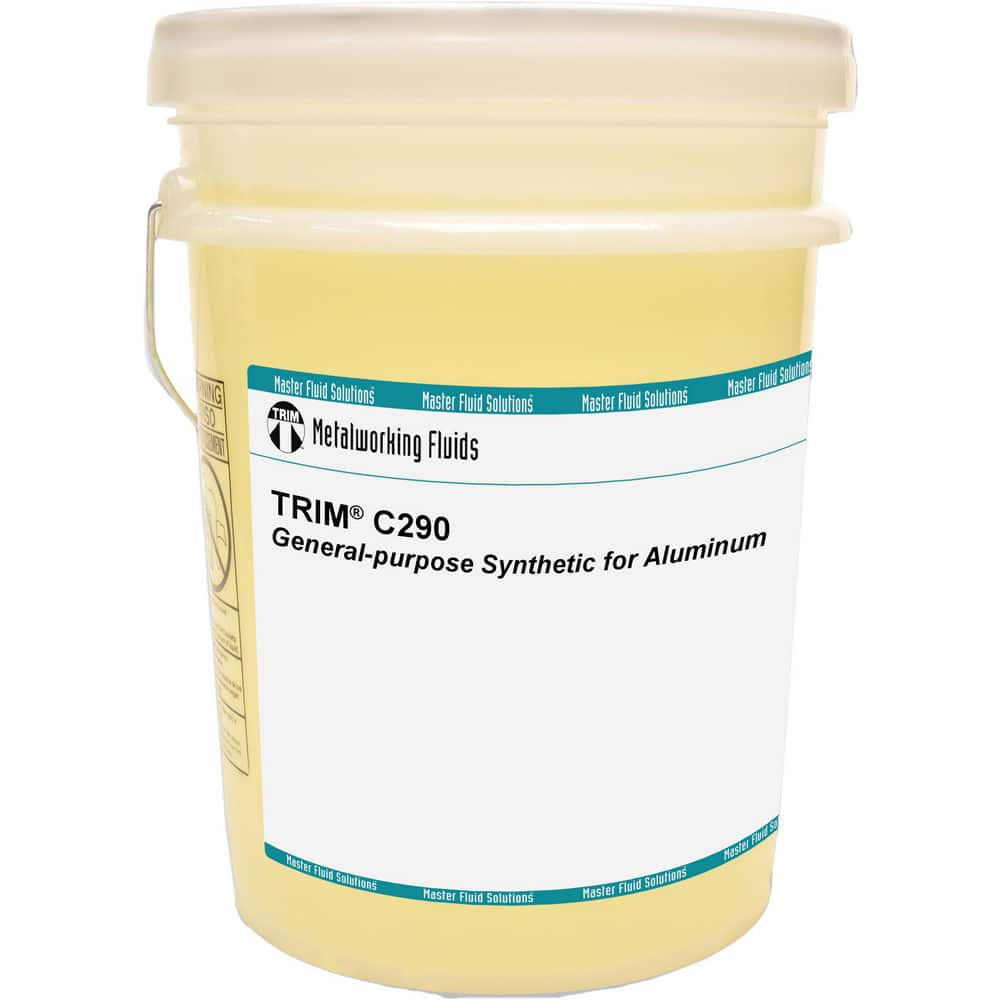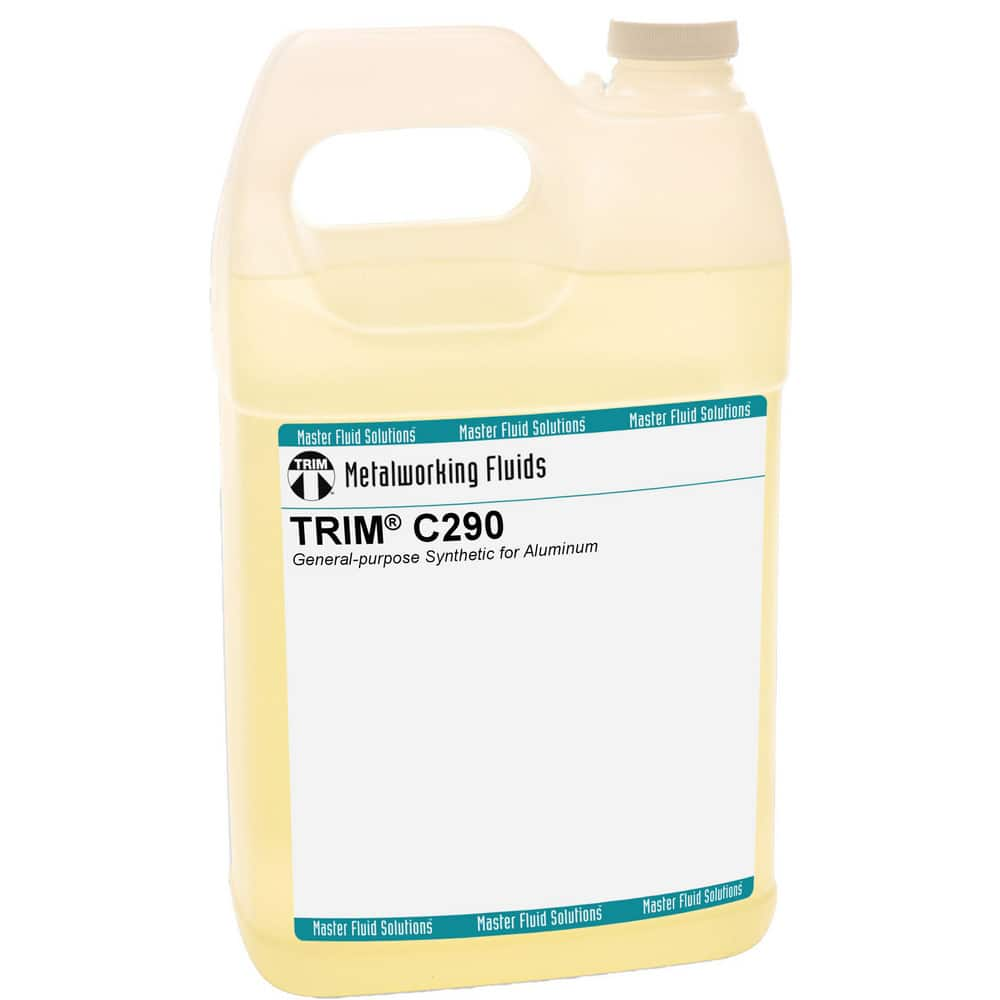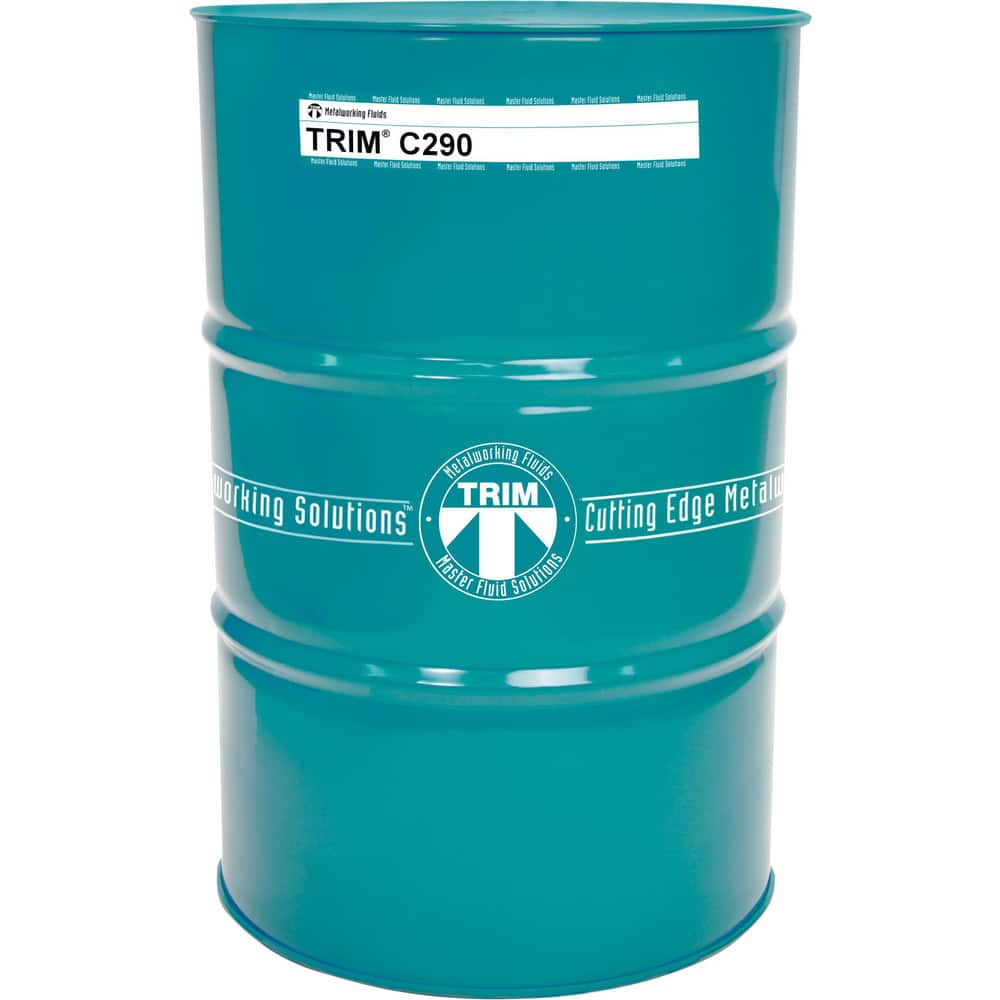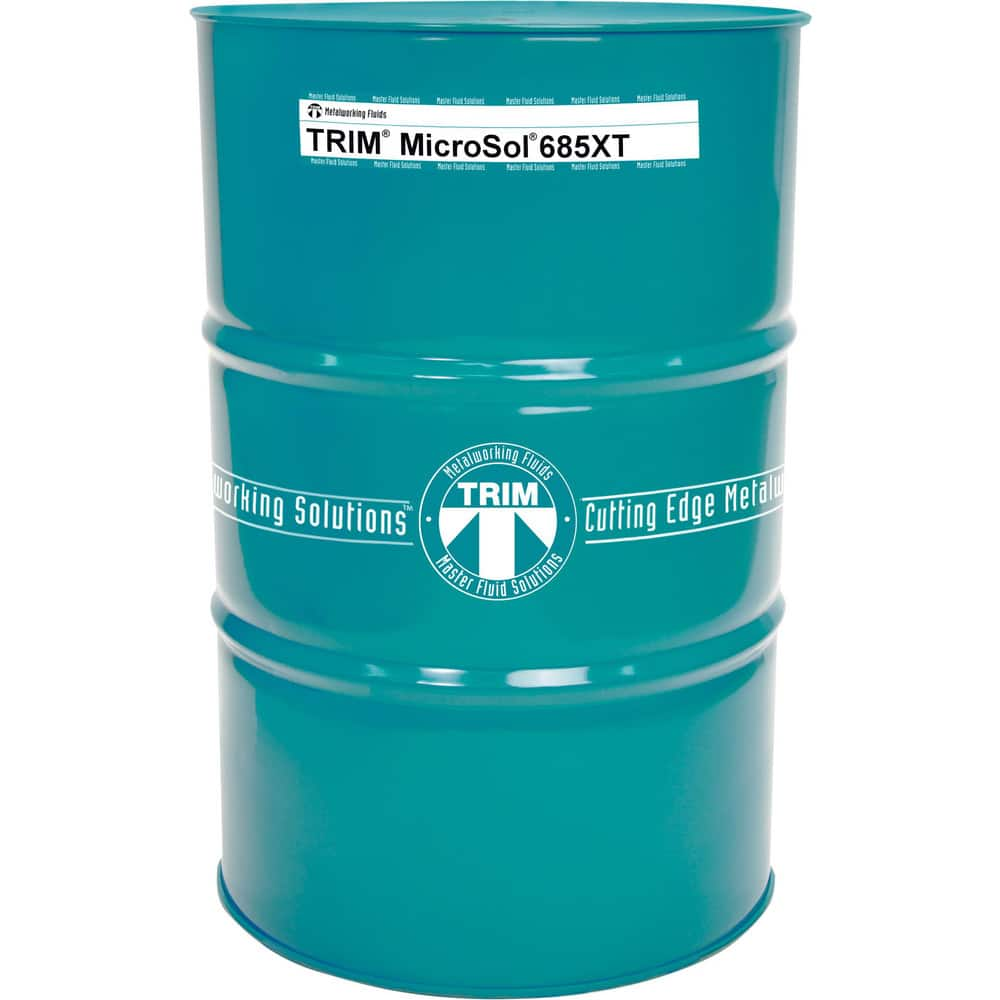A Comprehensive Guide to Metalworking Machines, Applications and Tips and More
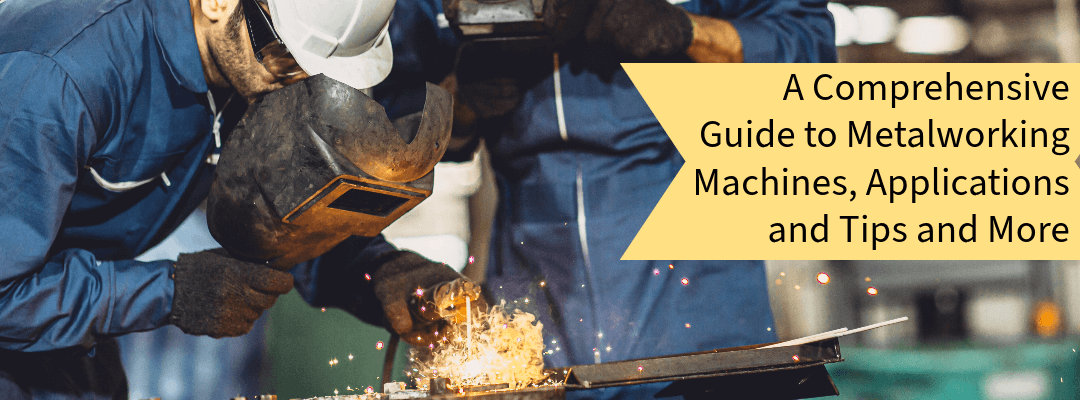
Introduction to Metalworking
Metalworking is an art and science that plays a pivotal role in various industries, from construction to aerospace. The ability to shape and cut metal with precision is essential for creating everything from intricate components to structural frameworks. In this comprehensive guide, we will delve into the world of metalworking, exploring the essential machines and tools that are at the heart of this craft.
Metal Forming & Cutting Machines
At the core of metalworking are the machines that facilitate the transformation of raw metal materials into finished products. These machines come in various forms, each designed for specific tasks. Let's start by understanding the fundamentals of metal forming and cutting machines and how they differ from one another.
Essential Machines and Their Uses
Arbor Presses
Arbor presses are compact but powerful machines used for pressing, punching, and assembly tasks in metalworking. Their versatility makes them invaluable for tasks such as riveting, bearing installation, and hole punching. Explore the world of Arbor Presses and discover their applications.
Combination Metalworking Machines, Punches & Dies
Combination metalworking machines are a boon for workshops with limited space. These multifunctional machines combine several metalworking processes into one, saving both space and cost. Dive into the world of Combination Metalworking Machines, Punches & Dies to explore their versatility.
-
EncoSpecial Price $1031.49This product is sold in increments of 1
-
EncoSpecial Price $1373.99This product is sold in increments of 1
-
ClevelandSpecial Price $24.29 Regular Price $33.36This product is sold in increments of 1
-
ClevelandSpecial Price $24.29 Regular Price $33.36This product is sold in increments of 1
Floor & Bench Shears
Floor and bench shears are essential tools for cutting metal sheets and plates with precision. They come in various sizes and capacities, making them suitable for different metalworking tasks. Learn more about Floor & Bench Shears and their role in metal fabrication.
-
BaileighSpecial Price $8404.79 Regular Price $9225.41This product is sold in increments of 1
-
GenericSpecial Price $32150.49 Regular Price $34580.86This product is sold in increments of 1
-
GenericSpecial Price $41521.99 Regular Price $45581.89This product is sold in increments of 1
-
BaileighSpecial Price $40722.49This product is sold in increments of 1
Metal Forming & Cutting Machine Accessories
Accessories are the unsung heroes of metalworking, enhancing the functionality and versatility of your machines. Discover the importance of accessories such as punches and dies, press brake tooling, and shear blades in the Metal Forming & Cutting Machine Accessories category.
-
RigidSpecial Price $539.49 Regular Price $703.41This product is sold in increments of 1
-
Value CollectionSpecial Price $283.29 Regular Price $331.96This product is sold in increments of 1
-
RigidSpecial Price $361.79 Regular Price $436.83This product is sold in increments of 1
-
RigidSpecial Price $644.29 Regular Price $779.57This product is sold in increments of 1
Specialized Machines and Techniques
Metal Notchers
Metal notchers are specialized machines designed for creating notches or cuts in metal sheets. They are commonly used in the HVAC industry for tasks like V-notching and corner notching. Explore the world of Metal Notchers and their applications.
Pipe Forming & Cutting Machines, Punches & Dies
Working with pipes in metalworking requires specialized equipment. Pipe forming and cutting machines, along with punches and dies designed for pipes, are essential for tasks like tube bending and precise pipe cutting. Discover the possibilities in the Pipe Forming & Cutting Machines, Punches & Dies category.
-
RigidSpecial Price $2043.29 Regular Price $2787.39This product is sold in increments of 1
-
RigidSpecial Price $14181.29 Regular Price $21415.68This product is sold in increments of 1
-
RigidSpecial Price $1705.99 Regular Price $2341.34This product is sold in increments of 1
-
RigidSpecial Price $6993.79 Regular Price $8359.72This product is sold in increments of 1
Power Hammer Machines
Power hammer machines are the muscle of metalworking, capable of delivering controlled and powerful blows to shape metal. They find applications in forging, texturing, and blacksmithing. Learn more about Power Hammer Machines and their role in metal shaping.
Press Brakes, Punches & Dies
Press brakes, punches, and dies are essential for precise metal bending and hole punching. These machines and tools are widely used in industries such as sheet metal fabrication, automotive, and aerospace. Dive into the world of Press Brakes, Punches & Dies to explore their applications.
Seamer Machines
Seamer machines play a crucial role in joining and sealing metal seams. They are commonly used in applications such as metal roofing and ductwork. Explore the world of Seamer Machines and their importance in metal joining.
Shop Presses
Shop presses are versatile machines used for pressing, bending, and forming metal components. They find applications in auto repair, metal fabrication, and various metalworking tasks. Discover the versatility of Shop Presses in this category.
Shrinker Stretchers
Shrinker stretchers are indispensable for modifying the dimensions and shapes of metal components. They are commonly used in automotive restoration and general metalworking. Learn more about Shrinker Stretchers and how they can modify metal.
Slip Rolls, Rotary Machines & English Wheels
These machines excel at rolling and shaping metal sheets, creating curves and contours. They find applications in custom fabrication and aircraft manufacturing. Explore the possibilities in the Slip Rolls, Rotary Machines & English Wheels category.
Structural Metal Benders
Structural metal benders are designed for shaping metal bars, tubes, and rods into various structural shapes. They find applications in construction and metal fabrication. Discover the role of Structural Metal Benders in bending metal for structural purposes.
Strut & Rod Cutters
Strut and rod cutters are specialized tools for cutting metal struts, rods, and similar materials. They are commonly used in electrical and plumbing work, as well as construction. Explore the world of Strut & Rod Cutters and their applications.
-
Jet ToolsSpecial Price $663.99 Regular Price $1087.32This product is sold in increments of 1
-
MakitaSpecial Price $2044.99 Regular Price $2059.31This product is sold in increments of 1
-
MakitaSpecial Price $3177.79This product is sold in increments of 1
-
MakitaSpecial Price $1926.49 Regular Price $1939.94This product is sold in increments of 1
Swaging Machines
Swaging machines are designed to reduce or expand the diameter of metal tubing or piping. They find applications in aviation, manufacturing, and various metalworking tasks. Learn more about Swaging Machines and their use in metalworking.
Tips for Choosing the Right Machine
Choosing the right metalworking machine is a pivotal decision that can significantly impact the outcome of your projects. To ensure your work is efficient, precise, and safe, consider the following tips when selecting the perfect machine for your needs.
1. Know Your Metal
The type of metal you primarily work with plays a fundamental role in determining the right machine for you. Different metals, such as steel, aluminum, copper, and brass, have distinct properties and requirements. Some machines may excel in shaping one type of metal but may not be suitable for another. Understanding your materials will guide you in making an informed choice.
For example, if you frequently work with thick steel plates, a powerful press brake with high tonnage capacity may be necessary to bend the metal effectively. Conversely, for delicate aluminum components, a gentler machine with precision control would be more appropriate.
2. Assess Project Complexity
Consider the complexity of your metalworking projects. Are you crafting intricate metal art or producing large quantities of standardized components? Machines vary in their capabilities and precision. Complex projects may demand multifunctional machines like combination metalworking machines, while simpler tasks can be accomplished with specialized tools.
3. Evaluate Available Workspace
Metalworking machines come in various sizes and configurations. Assess the available workspace in your workshop or garage. Ensure that the machine you choose fits comfortably within your designated area. Also, consider the space needed for material handling, safety zones, and the movement of the machine itself. Adequate workspace not only ensures safety but also facilitates efficient workflow.
4. Safety Is Paramount
Above all else, prioritize safety when selecting a metalworking machine. Ensure that the machine you choose complies with safety standards and regulations. Look for features such as emergency stop buttons, safety guards, and automatic shut-off mechanisms. Additionally, invest in personal protective equipment (PPE) such as safety glasses, ear protection, and gloves to safeguard yourself while operating the machine.
5. Seek Expert Advice
If you're unsure about which machine best suits your needs, don't hesitate to seek advice from experts in the field. Consult with experienced metalworkers or reach out to suppliers who specialize in metalworking equipment. They can provide valuable insights and recommend suitable machines based on your specific requirements.
6. Consider Future Expansion
Think long-term. As your skills and projects evolve, your machine requirements may change. Investing in a machine with room for growth and additional features can save you money and time down the road. Some machines offer modular add-ons or upgrade options, allowing you to expand their capabilities as needed.
7. Budget Wisely
Metalworking machines vary in price, and while quality often correlates with cost, it's essential to work within your budget. Determine how much you can comfortably invest in a machine without compromising on quality or safety. Consider the machine's durability and the availability of spare parts and support services, as these factors contribute to its long-term value.
In conclusion, choosing the right metalworking machine is a critical step in ensuring the success and safety of your projects. By understanding the type of metal you work with, the complexity of your projects, and your available workspace, you can make an informed decision. Prioritize safety, seek expert advice when necessary, plan for future expansion, and budget wisely to find the perfect machine that meets your metalworking needs. Remember that a well-chosen machine can be a valuable asset in your metalworking endeavors, opening up a world of creative possibilities.
Safety Precautions
Safety is paramount in the world of metalworking. Whether you're a seasoned professional or a novice enthusiast, following strict safety precautions is essential to prevent accidents and ensure a secure working environment. Here, we'll delve into the importance of safety and provide guidelines to help you work with metalworking machines safely.
1. Follow Manufacturer Guidelines
The first and most crucial step in ensuring safety when working with metalworking machines is to adhere to the manufacturer's guidelines and recommendations. Every machine comes with an instruction manual that outlines its proper usage, maintenance, and safety procedures. Familiarize yourself with these instructions thoroughly before operating the machine. If you're unsure about any aspect, consult the manual or seek guidance from the manufacturer or a knowledgeable expert.
2. Wear Appropriate Safety Gear
Personal protective equipment (PPE) is your first line of defense against potential hazards in the metalworking environment. The specific gear you need may vary depending on the machine and the tasks you're performing, but some common PPE includes:
- Safety Glasses: Protect your eyes from flying debris, sparks, and metal shavings.
- Hearing Protection: Reduce the risk of hearing damage from loud machinery.
- Gloves: Shield your hands from sharp edges, hot materials, and chemicals.
- Respirator or Dust Mask: Guard against inhaling harmful dust, fumes, or particles.
- Steel-Toed Boots: Provide foot protection in case heavy materials or tools fall.
- Earplugs or Earmuffs: Additional hearing protection, especially for prolonged exposure to loud noise.
Always ensure that your PPE is in good condition and properly fitted. Replace any damaged or worn-out gear immediately.
3. Ensure Proper Training
Never operate a metalworking machine without proper training. Enroll in training courses or seek guidance from experienced professionals to acquire the necessary skills and knowledge. Training should cover not only the operation of the machine but also safety procedures, emergency protocols, and best practices for accident prevention. Additionally, make sure that your team members receive adequate training if you're working in a group environment.
4. Maintain a Clean Workspace
A cluttered and disorganized workspace can increase the risk of accidents. Keep your work area clean and well-organized. Remove debris, scraps, and any unnecessary objects from the vicinity of the machine. Ensure that the floor is clear of trip hazards. Properly store tools and materials when they're not in use to prevent accidents and injuries caused by tripping or falling objects.
5. Use Machine Guards
Most metalworking machines come equipped with safety guards and barriers. These are designed to protect you from moving parts, sparks, and debris. Never remove or bypass these safety features, as they are there for your protection. If a guard is damaged or missing, report it immediately and refrain from using the machine until it's repaired or replaced.
6. Maintain Machines Regularly
Regular maintenance is crucial to keep metalworking machines in safe working condition. Follow the manufacturer's recommended maintenance schedule and conduct routine checks for wear and tear. Lubricate moving parts as needed, and replace worn-out components promptly. A well-maintained machine is less likely to malfunction, reducing the risk of accidents.
7. Stay Alert and Focused
When operating metalworking machines, maintain constant vigilance. Avoid distractions and stay focused on the task at hand. Fatigue, stress, or lack of concentration can lead to accidents. If you're feeling tired or unfocused, take a break and return to the task when you're in a better state of mind.
In conclusion, safety is non-negotiable in the world of metalworking. Following manufacturer guidelines, wearing appropriate safety gear, undergoing proper training, maintaining a clean workspace, using machine guards, conducting regular maintenance, and staying alert are all essential steps to ensure a safe and productive metalworking environment. Prioritizing safety not only protects you and your team but also enhances the quality of your work and contributes to successful metalworking projects.
Top Industrial Applications for Metalworking Equipment
Metalworking equipment plays a crucial role in various industries, enabling the transformation of raw metal materials into finished products and components. The versatility and precision of these machines make them indispensable in a wide range of industrial applications. Here, we'll explore some of the top industrial applications where metalworking equipment is essential:
1. Aerospace Industry
The aerospace industry demands high-precision components and materials with exceptional strength-to-weight ratios. Metalworking machines, such as CNC machining centers and precision grinders, are used to manufacture critical parts like aircraft engine components, landing gear, and structural elements. These machines ensure that every component meets rigorous quality and safety standards.
2. Automotive Manufacturing
The automotive industry relies heavily on metalworking equipment to produce various parts, including engine components, chassis, and body panels. Press brakes, stamping presses, and die-cutting machines are used to shape and form metal sheets and plates. CNC machining centers are employed for precise machining of engine blocks, cylinder heads, and transmission components.
3. Construction and Infrastructure
Metalworking equipment plays a significant role in construction and infrastructure development. Structural metal benders are used to shape steel beams, columns, and other structural elements. Metal notchers and press brakes are crucial for fabricating components like brackets, connectors, and reinforcement bars. These machines ensure the structural integrity of buildings, bridges, and other infrastructure projects.
4. Manufacturing of Industrial Machinery
The manufacturing sector relies on metalworking equipment to create the machinery that drives various industries. Combination metalworking machines, punches, and dies are used in the production of industrial equipment, including conveyor systems, packaging machinery, and material handling systems. These machines enable the fabrication of intricate components and assemblies.
5. Energy and Power Generation
The energy sector depends on metalworking equipment to produce essential components for power generation and distribution. For example, pipe forming and cutting machines, along with punches and dies, are used in the fabrication of pipelines and electrical enclosures. Structural metal benders assist in creating supports and frames for power generation equipment. These machines help ensure the reliable supply of electricity and other forms of energy.
6. Electronics Manufacturing
Precision and miniaturization are paramount in the electronics industry. Metalworking equipment, such as CNC milling machines and wire EDM (Electrical Discharge Machining) machines, are employed to create intricate components like circuit board connectors, heat sinks, and enclosures. These machines enable the production of compact and high-performance electronic devices.
7. Medical Device Manufacturing
The medical device industry demands precise and sterile components for a wide range of equipment, from surgical instruments to diagnostic devices. CNC machining centers and precision grinding machines are used to create these critical components with tight tolerances. Metalworking equipment ensures the safety and effectiveness of medical devices used in healthcare settings worldwide.
8. Oil and Gas Exploration
In the oil and gas industry, metalworking equipment is crucial for manufacturing drilling equipment, pipelines, and processing facilities. Pipe forming and cutting machines, swaging machines, and press brakes are utilized to create durable components that can withstand the harsh conditions of drilling, extraction, and transportation of oil and gas resources.
9. Defense and Military
The defense and military sectors rely on metalworking equipment for the production of weapons, vehicles, and equipment. CNC machining centers are used to create precise firearm components, while metal notchers and press brakes assist in fabricating armored vehicle parts. Metalworking plays a vital role in ensuring the readiness and effectiveness of military forces.
10. Consumer Goods
Metalworking equipment also contributes to the manufacturing of consumer goods, including appliances, furniture, and consumer electronics. Presses, shears, and metal notchers are used to shape and form metal components for these products. The aesthetic and functional qualities of consumer goods often depend on the capabilities of metalworking machines.
In conclusion, metalworking equipment is a cornerstone of modern industrial production, with applications spanning multiple industries. Whether it's aerospace, automotive, construction, energy, electronics, medical, or defense, these machines enable the creation of essential components and products that shape our world. The precision, versatility, and efficiency of metalworking equipment continue to drive innovation and progress in various industrial sectors.
Popular DIY Metalworking Projects
Metalworking isn't just an industrial endeavor; it's also a creative outlet that allows you to craft beautiful and functional items right in your own workshop. Whether you're an experienced metalworker or just starting, here are some inspiring DIY metalworking project ideas that you can accomplish using the machines and tools discussed in this guide.
1. Metal Wall Art
Transform your living space with stunning metal wall art pieces. Metal wall art can range from abstract designs to intricate patterns, and you can create your own unique pieces using metalworking tools like shears, press brakes, and slip rolls.
Project Idea: Design a geometric metal wall art piece by cutting and bending metal sheets into various shapes and angles. The precision of the shears and press brakes will help you achieve clean lines and sharp angles. Experiment with different finishes, such as painting or polishing, to add your personal touch.
2. Custom Metal Brackets
If you're a DIY enthusiast who loves home improvement projects, custom metal brackets can be a game-changer. These brackets provide strong and stylish support for shelves, furniture, or even architectural elements.
Project Idea: Create custom metal brackets for a set of floating shelves. Use a press brake to bend the metal at precise angles and punches to create mounting holes. The result will be both functional and aesthetically pleasing, adding a touch of industrial elegance to your home.
3. Metal Garden Sculptures
Elevate your outdoor space with unique metal garden sculptures. With the power hammer machines and welding techniques at your disposal, you can craft stunning sculptures that withstand the elements and become focal points in your garden.
Project Idea: Design a metal flower sculpture with layered petals. Use the power hammer to shape the petals from flat metal sheets, creating a three-dimensional effect. Weld the layers together and add a weather-resistant finish to ensure longevity. Your garden will bloom with creativity.
4. Metal Jewelry
For those with a passion for accessories and personal adornment, crafting your own metal jewelry can be a rewarding endeavor. Metal notchers and seamer machines are invaluable for creating intricate metal components for jewelry making.
Project Idea: Craft a statement metal cuff bracelet using metal notchers to create decorative cutouts and seamer machines to shape the metal into a curved bracelet form. Add texture, polish, or patina to achieve the desired look. You'll have a unique piece of wearable art to showcase your craftsmanship.
These DIY metalworking projects offer a glimpse into the creative possibilities that metalworking machines and tools bring to DIY enthusiasts. They allow you to combine craftsmanship with artistic expression, resulting in functional and visually captivating creations.
Before embarking on any DIY metalworking project, ensure that you have the necessary skills, safety gear, and proper training. Always follow safety precautions, and consider seeking guidance from experienced metalworkers or taking relevant courses to hone your skills further.
Remember that these projects are not only about the final products but also about the satisfaction of working with your hands and turning raw materials into something beautiful and meaningful. Enjoy the journey of exploration and creativity in the world of metalworking.
Conclusion
In this extensive guide, we've covered a wide array of essential metalworking machines and tools, each with its unique capabilities and applications. Whether you're a professional metalworker or an enthusiast, having a good understanding of these machines is crucial for successful metalworking projects.
Remember that safety should always be a top priority when working with these machines. Follow manufacturer guidelines, wear appropriate safety gear, and ensure proper training for yourself and your team.
Explore the world of metalworking, hone your skills, and embark on exciting projects with the help of these versatile machines and tools. Happy metalworking!
Additional Metalworking Product Recommendations
Browse more metalworking products below or search for your specific metalworking product on GoVets.
-
Accu-LubeSpecial Price $6073.99 Regular Price $8769.26This product is sold in increments of 1
-
Value CollectionSpecial Price $61.29 Regular Price $65.44This product is sold in increments of 1
-
Value CollectionSpecial Price $28.79 Regular Price $58.05This product is sold in increments of 1
-
ImportSpecial Price $90.79 Regular Price $112.44This product is sold in increments of 1
-
ImportSpecial Price $170.29 Regular Price $211.88This product is sold in increments of 1
-
Value CollectionSpecial Price $159.99 Regular Price $168.43This product is sold in increments of 1
-
ImportSpecial Price $79.79 Regular Price $98.88This product is sold in increments of 1
-
ImportSpecial Price $111.29 Regular Price $138.45This product is sold in increments of 1
-
Value CollectionSpecial Price $115.79 Regular Price $144.07This product is sold in increments of 1
-
CimcoolSpecial Price $219.79 Regular Price $282.43This product is sold in increments of 1
-
CimcoolSpecial Price $219.79 Regular Price $322.67This product is sold in increments of 1
-
CimcoolSpecial Price $385.99 Regular Price $412.43This product is sold in increments of 1
-
GenericSpecial Price $25.99 Regular Price $27.59This product is sold in increments of 1
-
CimcoolSpecial Price $2274.99 Regular Price $2606.6This product is sold in increments of 1
-
CimcoolSpecial Price $9505.29 Regular Price $10645.45This product is sold in increments of 1
-
CimcoolSpecial Price $2338.79 Regular Price $2781.82This product is sold in increments of 1
-
Master Fluid SolutionsSpecial Price $257.79 Regular Price $281.31This product is sold in increments of 1
-
Evolution Power ToolsSpecial Price $70.29This product is sold in increments of 1
-
Master Fluid SolutionsSpecial Price $12092.99This product is sold in increments of 1
-
CimcoolSpecial Price $2548.79This product is sold in increments of 1
-
CimcoolSpecial Price $273.29 Regular Price $307.36This product is sold in increments of 1
-
Master Fluid SolutionsSpecial Price $240.29 Regular Price $267.94This product is sold in increments of 1
-
SumnerSpecial Price $51.49This product is sold in increments of 1
-
Ashburn ChemicalSpecial Price $272.49 Regular Price $282This product is sold in increments of 1
-
DuboisSpecial Price $1856.99 Regular Price $2906.62This product is sold in increments of 1
-
Master Fluid SolutionsSpecial Price $57.99 Regular Price $185.54This product is sold in increments of 4
-
MonroeSpecial Price $212.79 Regular Price $455.31This product is sold in increments of 1
-
Master Fluid SolutionsSpecial Price $189.29 Regular Price $209.28This product is sold in increments of 1
-
Master Fluid SolutionsSpecial Price $44.99 Regular Price $184.71This product is sold in increments of 4
-
Master Fluid SolutionsSpecial Price $52.29 Regular Price $61.8This product is sold in increments of 1
-
Master Fluid SolutionsSpecial Price $1932.79This product is sold in increments of 1
-
Master Fluid SolutionsSpecial Price $243.49This product is sold in increments of 1
-
Master Fluid SolutionsSpecial Price $2478.29This product is sold in increments of 1
-
CastrolSpecial Price $6591.99This product is sold in increments of 1
-
CastrolSpecial Price $901.29 Regular Price $982.14This product is sold in increments of 1
-
DuboisSpecial Price $1679.49 Regular Price $2382.43This product is sold in increments of 1
-
DuboisSpecial Price $186.29This product is sold in increments of 1
-
DuboisSpecial Price $1358.49 Regular Price $1927.07This product is sold in increments of 1
-
DuboisSpecial Price $2081.79 Regular Price $3186.31This product is sold in increments of 1
-
DuboisSpecial Price $194.79This product is sold in increments of 1
-
Lubri-CutSpecial Price $11.29 Regular Price $15.76This product is sold in increments of 2
-
Lubri-CutSpecial Price $26.79 Regular Price $31.76This product is sold in increments of 2
-
Lubri-CutSpecial Price $11.29 Regular Price $12.88This product is sold in increments of 2
-
DuboisSpecial Price $2112.49 Regular Price $3259.76This product is sold in increments of 1
-
DuboisSpecial Price $256.29This product is sold in increments of 1
-
DuboisSpecial Price $2074.79This product is sold in increments of 1
-
Ashburn ChemicalSpecial Price $329.49 Regular Price $411.8This product is sold in increments of 1
-
Evolution Power ToolsSpecial Price $27.79This product is sold in increments of 1
-
DuboisSpecial Price $2827.29This product is sold in increments of 1
-
DuboisSpecial Price $1243.49This product is sold in increments of 1
-
DuboisSpecial Price $215.79This product is sold in increments of 1
-
DuboisSpecial Price $241.79This product is sold in increments of 1
- Veteran Spotlight
- GoVets Solutions
- Buying Guides & Projects
- Shopping Trends
- Prime Contractor Resources
- Business & Entrepreneur Resources
- GoVets Giving
- Online Security and Shopping Safety
- GoVets Top Selling Products
- Veteran Resources
- Product Spotlights
- Technology Updates
- GoVets Medallion Updates
- Government Updates
- GoVets Capabilities
- Press Releases
- Promotion Updates
- Industry Trends


